Estonia’s cherished Song Celebration that in 2019 celebrated its 150th anniversary, took place from 6-7 July 2019 in the country’s capital, Tallinn; Estonian World brings you some of the emotional moments from the celebration’s parade and the choral performances.*
The Estonian Song Celebration is a unique event, which every five years brings together a huge choir of up to 30,000 people for a weekend in July. Approximately 100,000 spectators enjoy the concerts and sing along to the most popular songs.
The first Song Celebration was initiated in 1869 by newspaper publisher Johann Voldemar Jannsen and celebrated freedom and the 50th anniversary of the end of Estonian serfdom at the hands of the Russian tsar in 1819. The first singing event was held in Tartu, with 878 male singers and brass musicians. All the songs were in Estonian and Estonians – mostly peasants and farmers at the time – discovered the value of their own language and cultural heritage through singing.
Since then, the singing celebrations became the main anchor of Estonian identity. In the 19th century, the choirs and song celebrations were at the core of the national awakening of Estonian peasants and it helped establish an identity that indirectly led to the country’s independence in 1918.
After the Second World War, during the Soviet occupation of Estonia, the song celebrations again helped keep the national identity alive. In the summer of 1988, several hundred thousand people gathered at the Tallinn Song Festival Grounds and sang for freedom for many days and nights. Dubbed “The Singing Revolution”, it indirectly led to Estonia’s independence once again in 1991.
The 27th Song Celebration
The 27th Song Celebration is entitled “My Fatherland is My Love” and as always, takes place at the Tallinn Song Festival Grounds, from 6-7 July. Participating in the celebration are 1,020 choirs, which include over 35,000 singers. The youngest participant is Emma Kannik (5) from Musamari Koorikool (Tallinn) and the oldest is Aino (90) from the New York Estonian Choir.
The smallest choir of 12 singers is Kauksi Primary School Choir and the largest is the European Estonian Choir, with 123 singers. The latter is not the only expat choir – 25 Estonian choirs from abroad and 17 foreign choirs are performing at the celebration.
The emotional celebration kicked off with a traditional parade on 6 July, during which the performers walked along a five-kilometre route from the Tallinn city centre to the Song Festival Grounds, where 82,000 people later watched them perform old and new Estonian choral songs and other classical pieces.
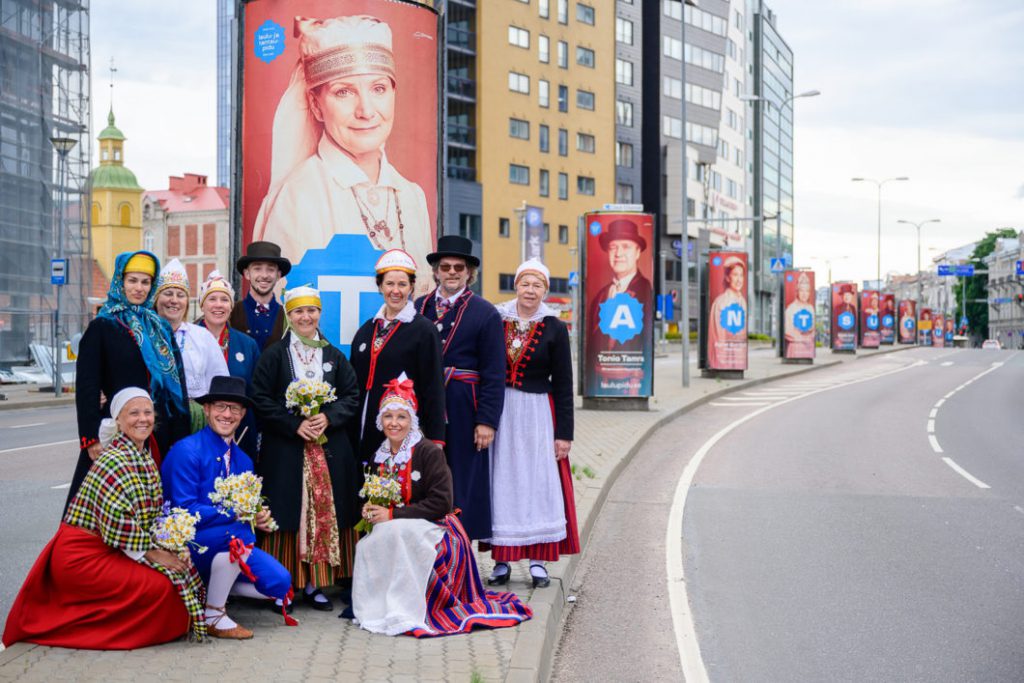
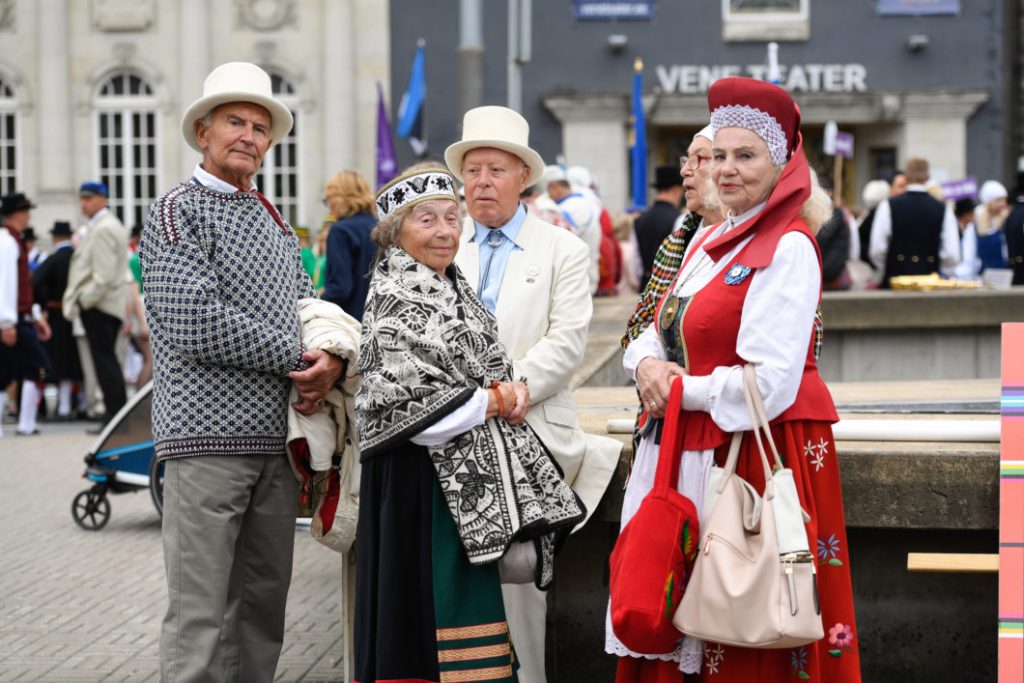
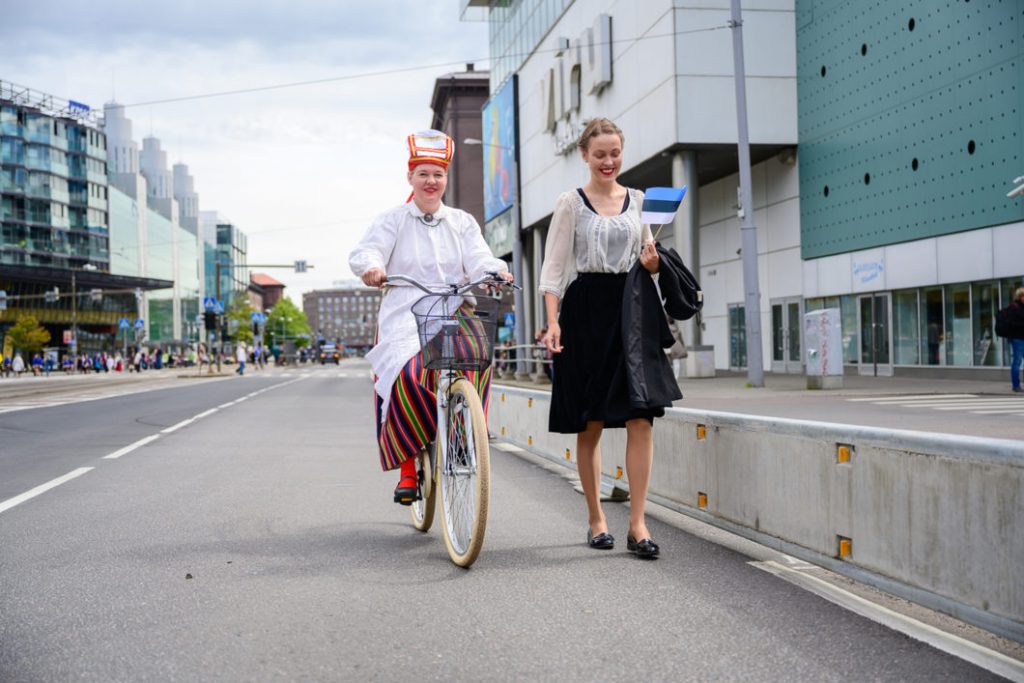
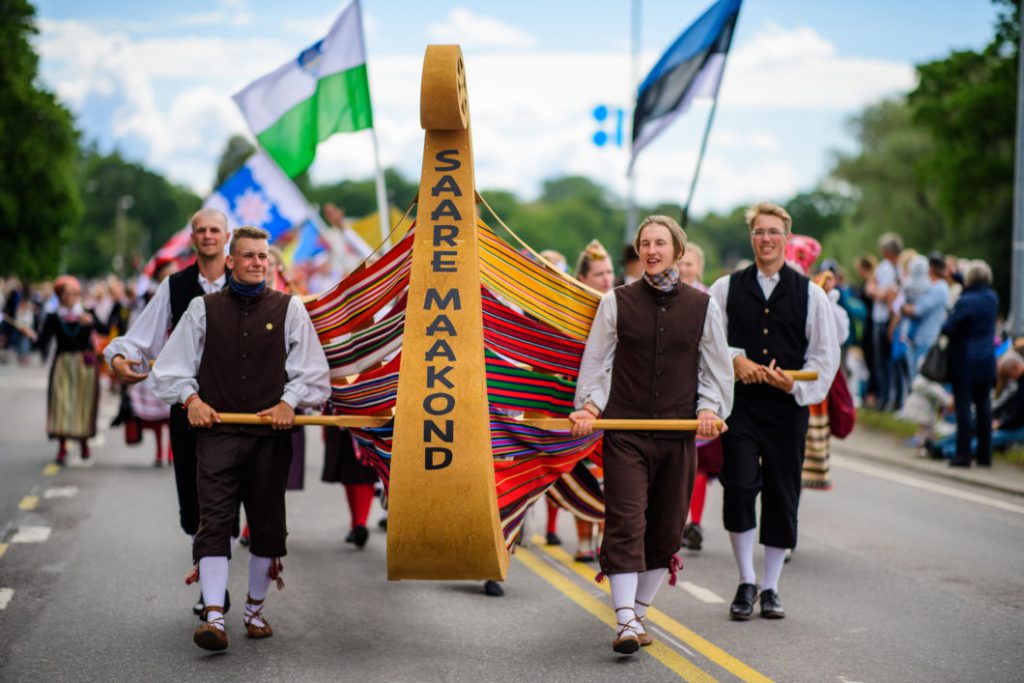
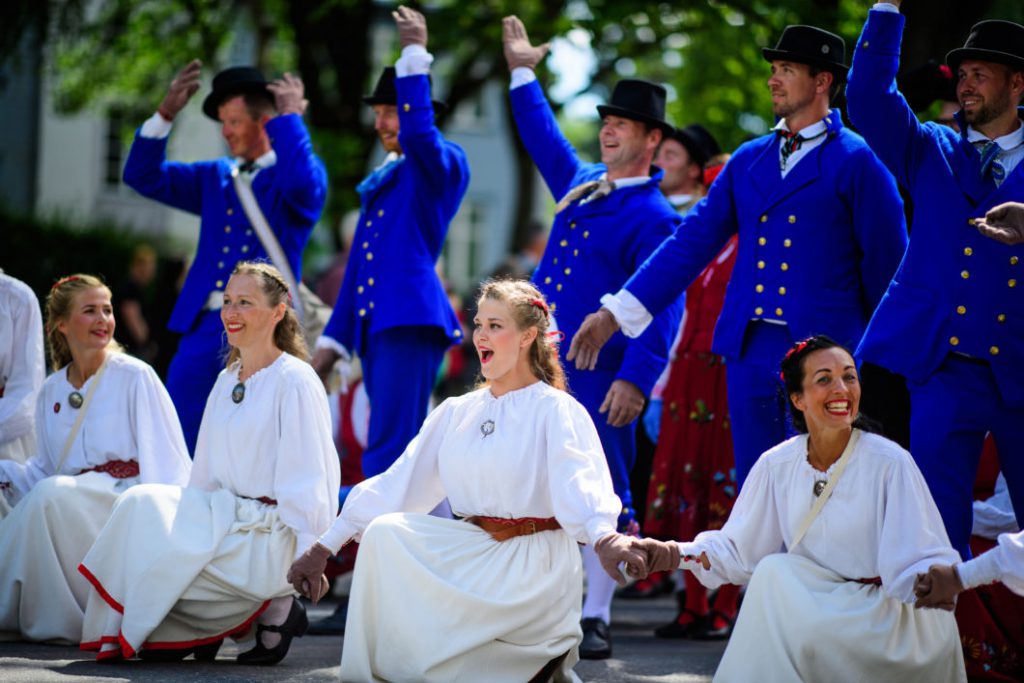
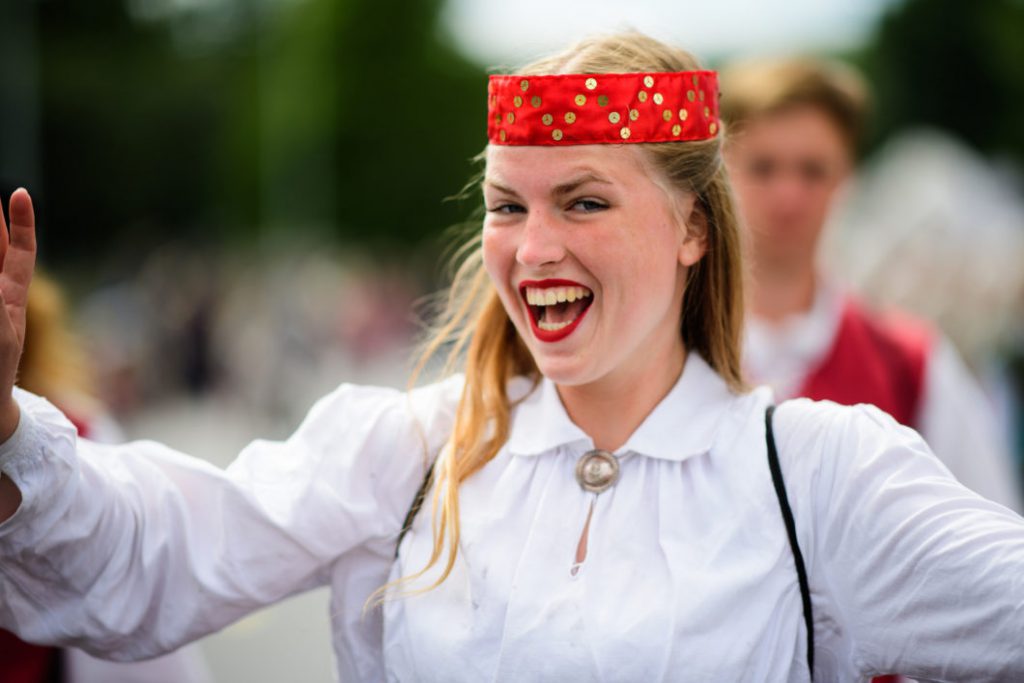
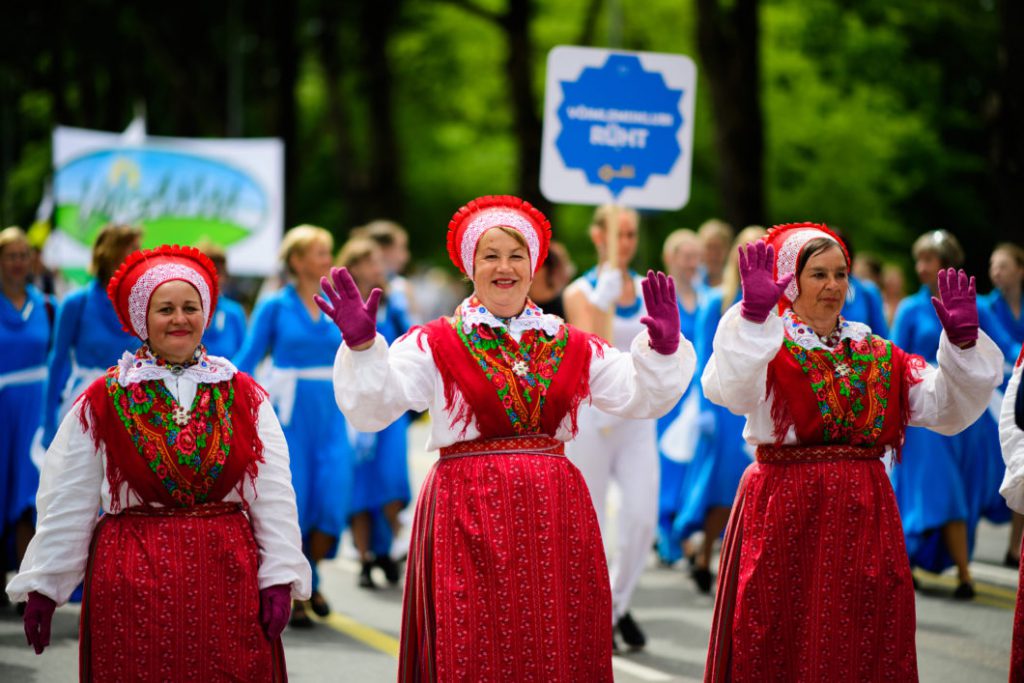
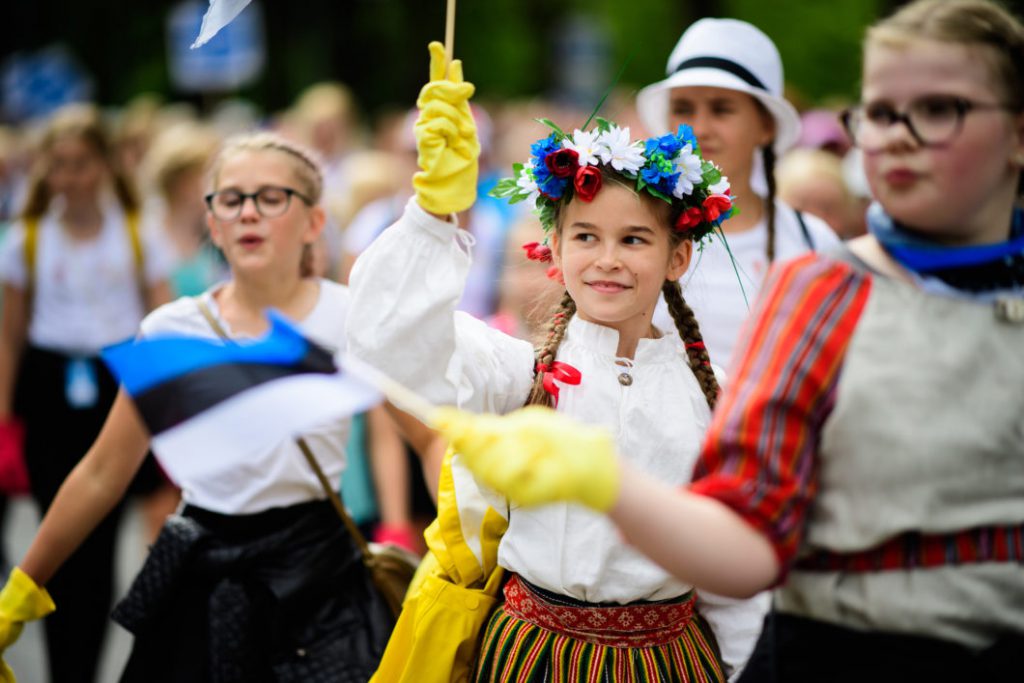

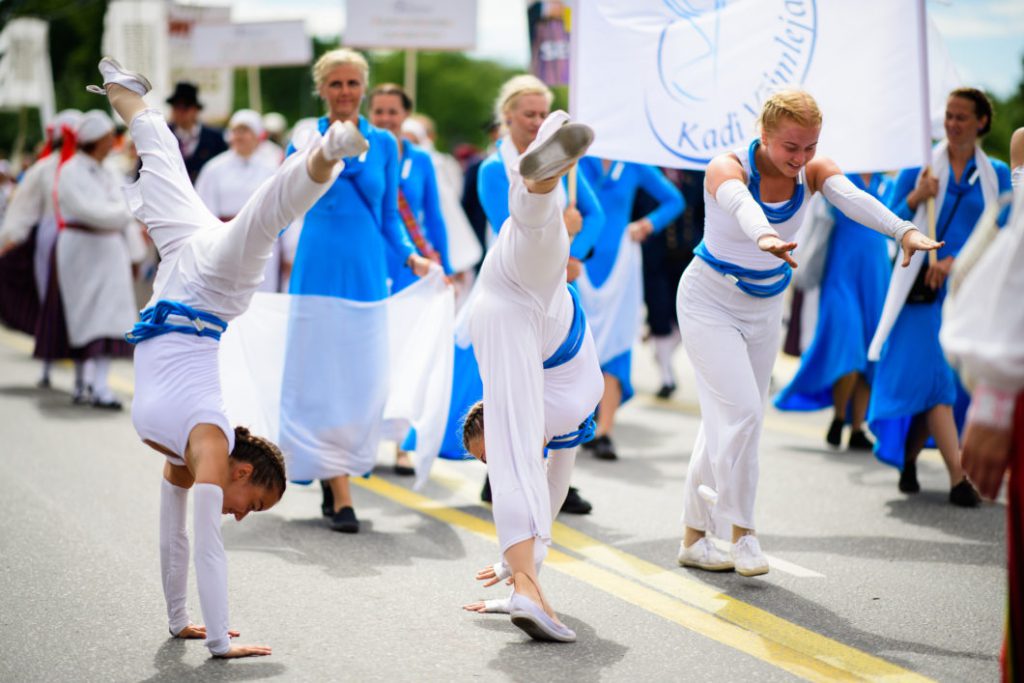
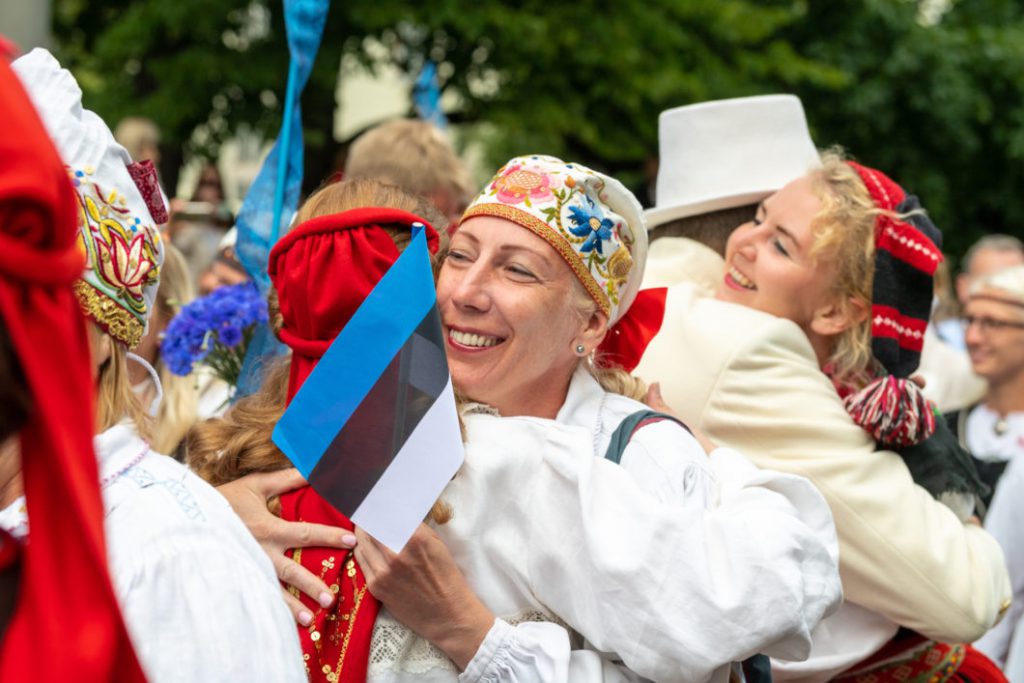
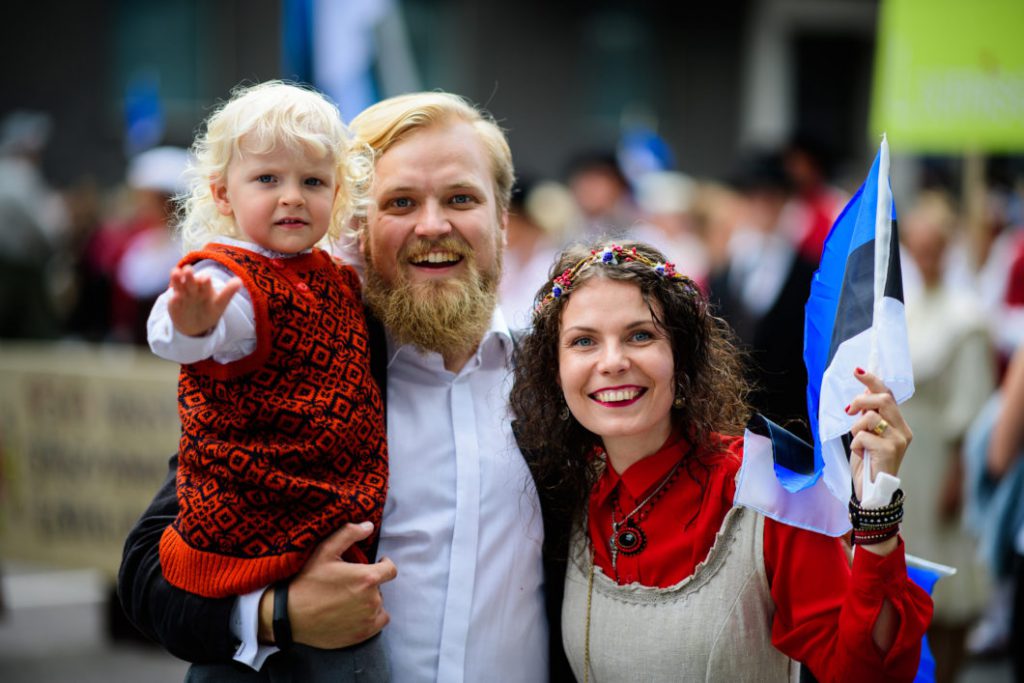
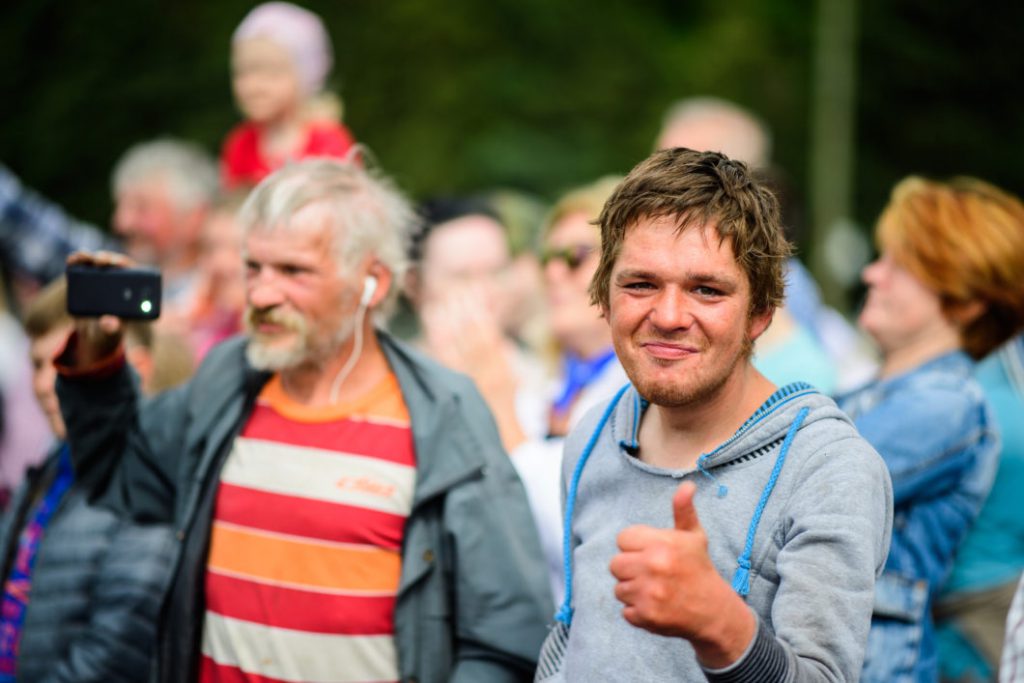
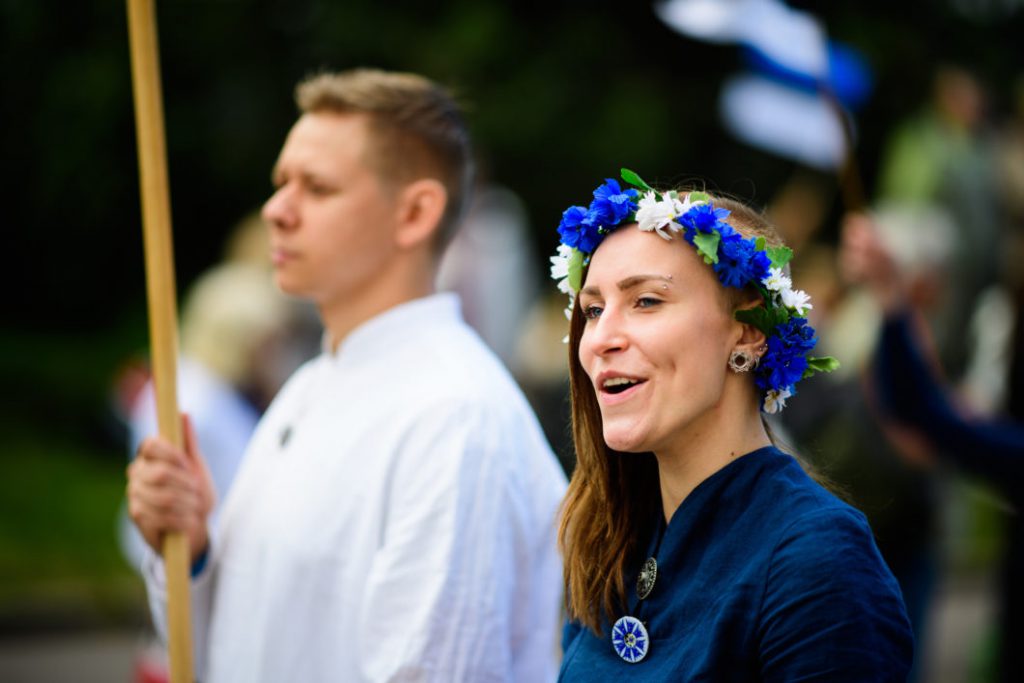
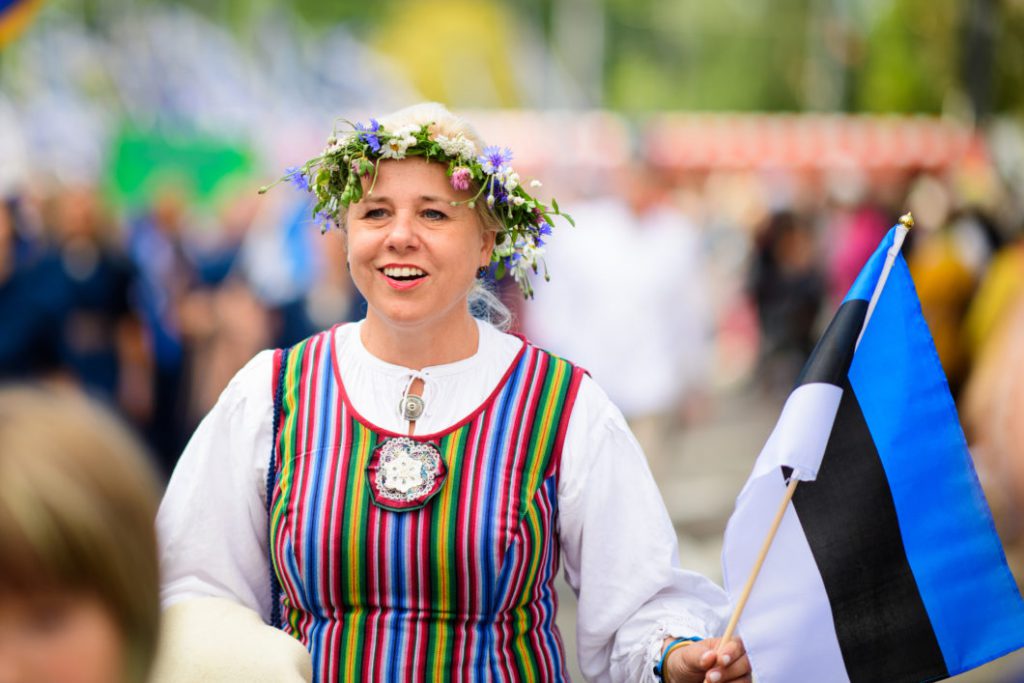
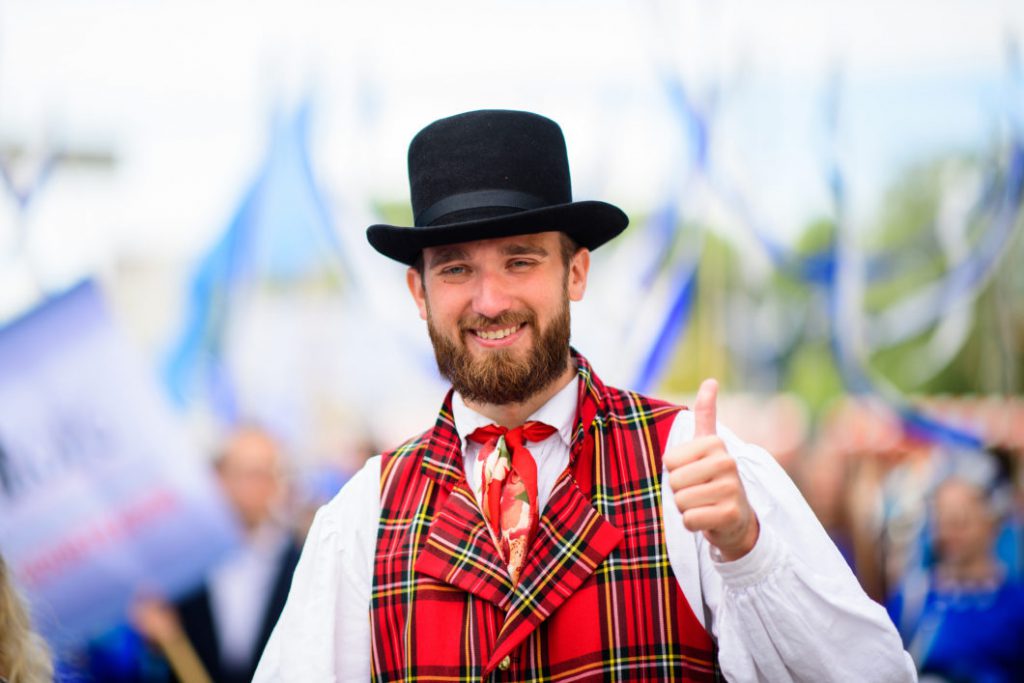
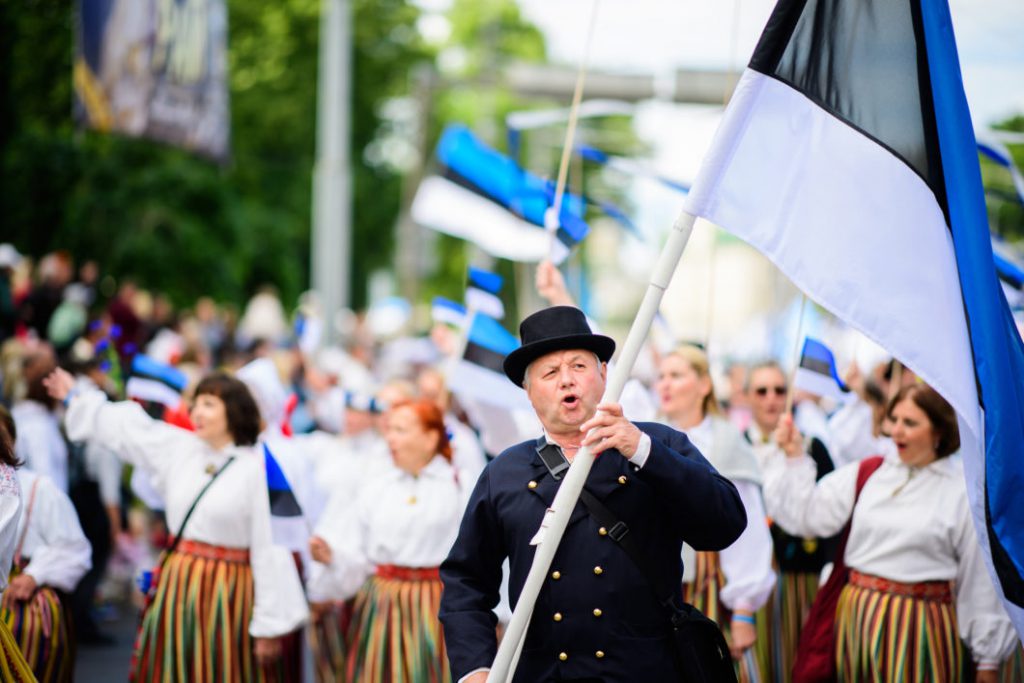
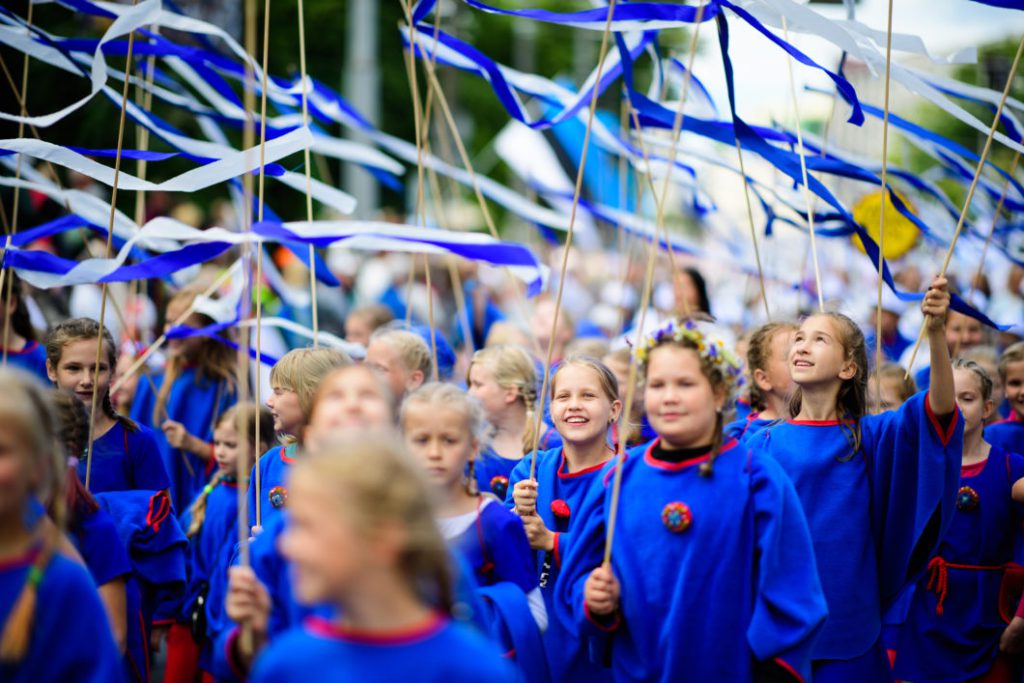
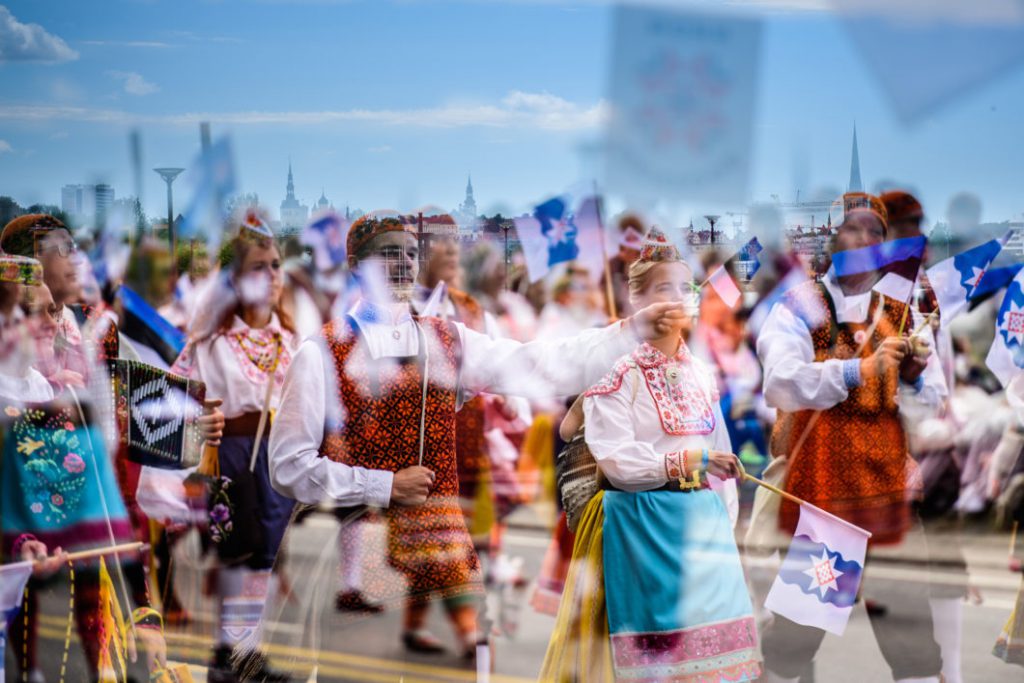
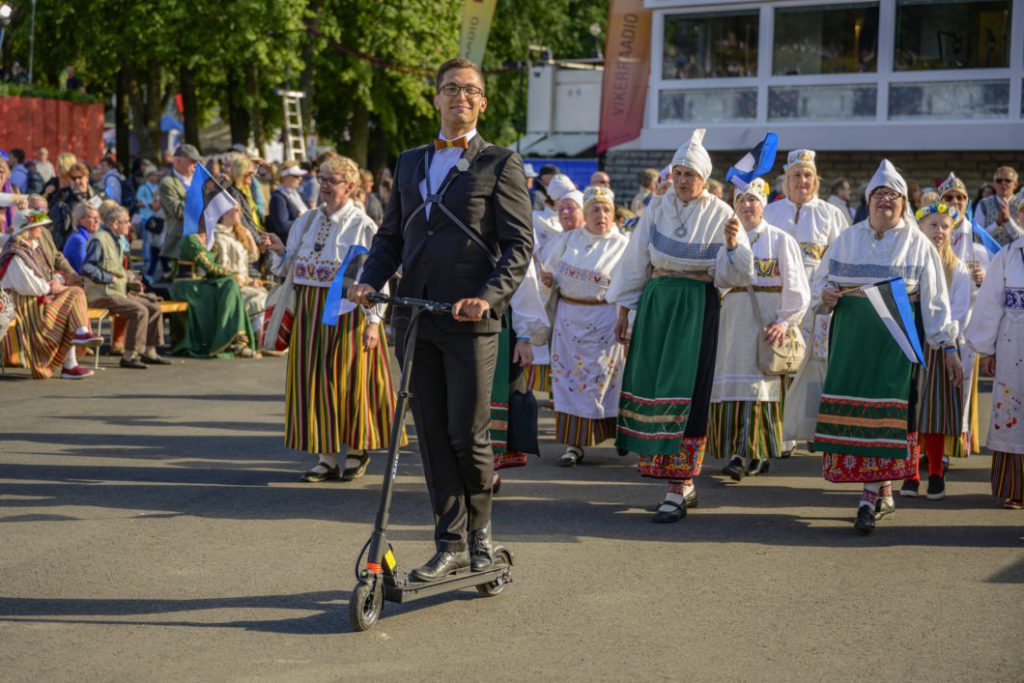
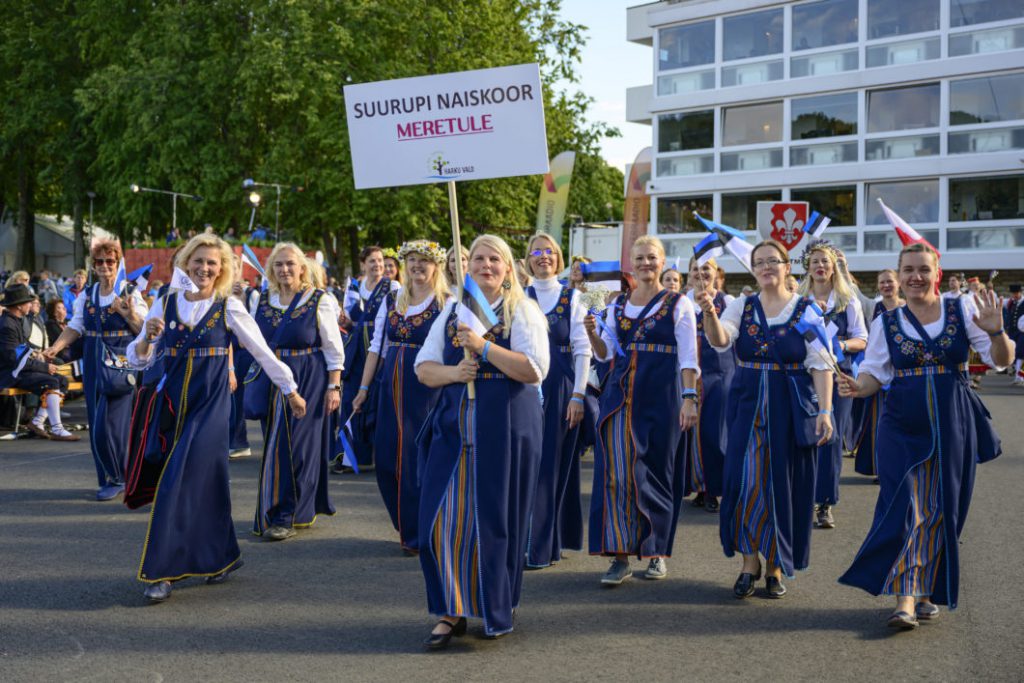
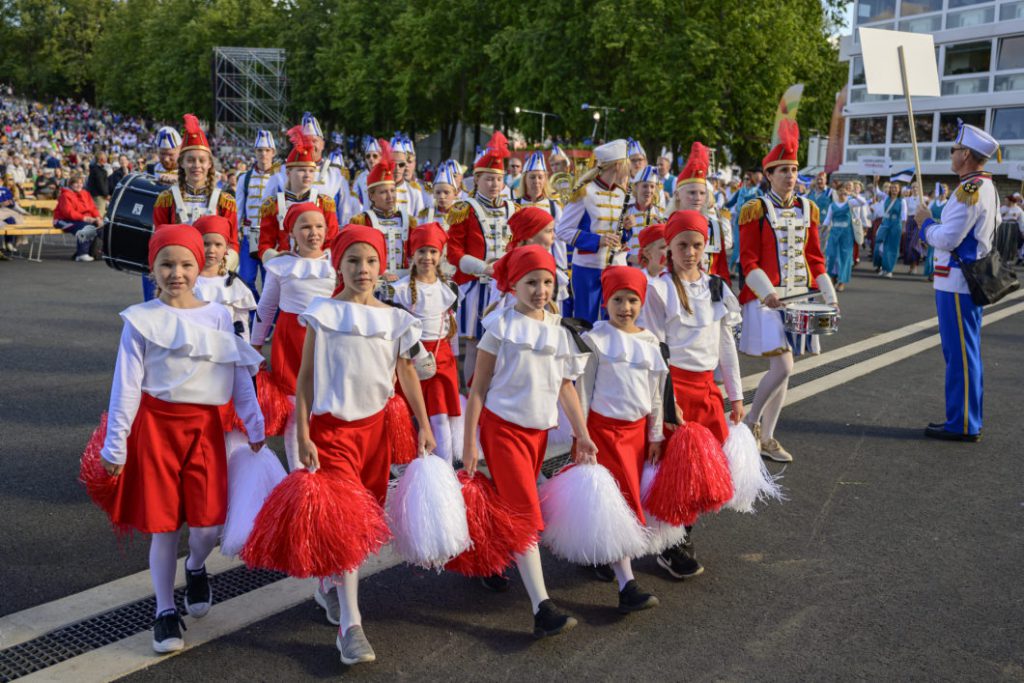

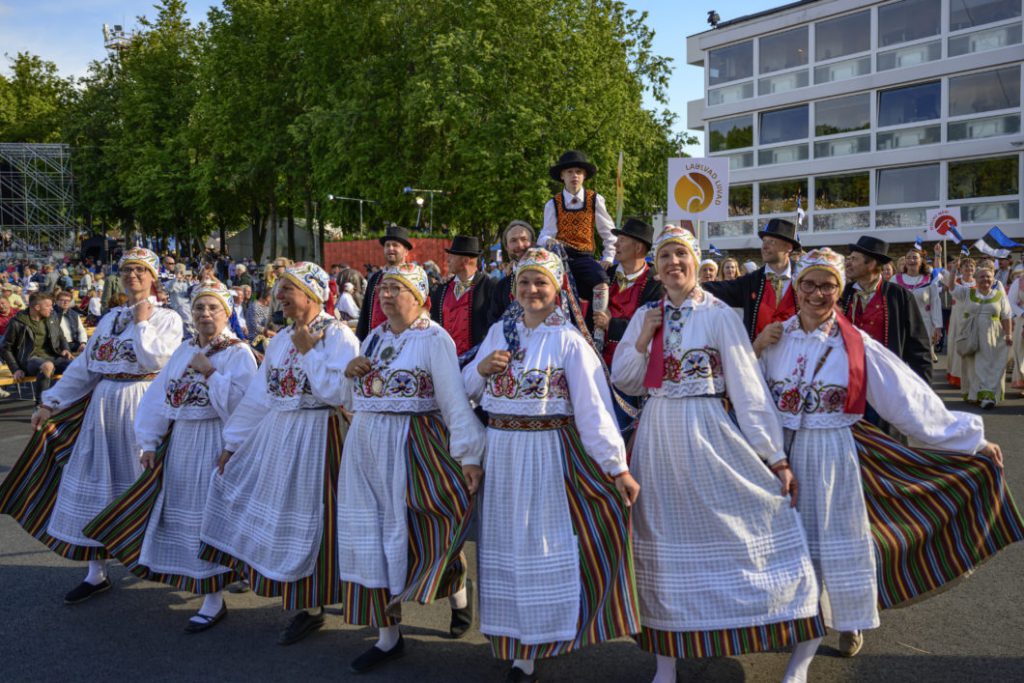
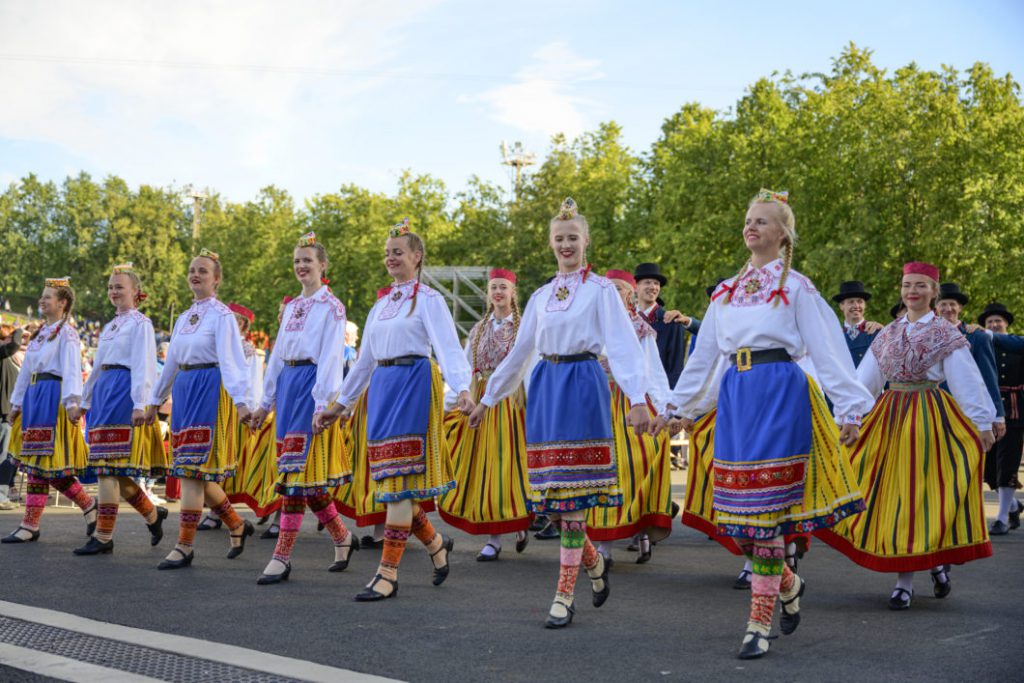
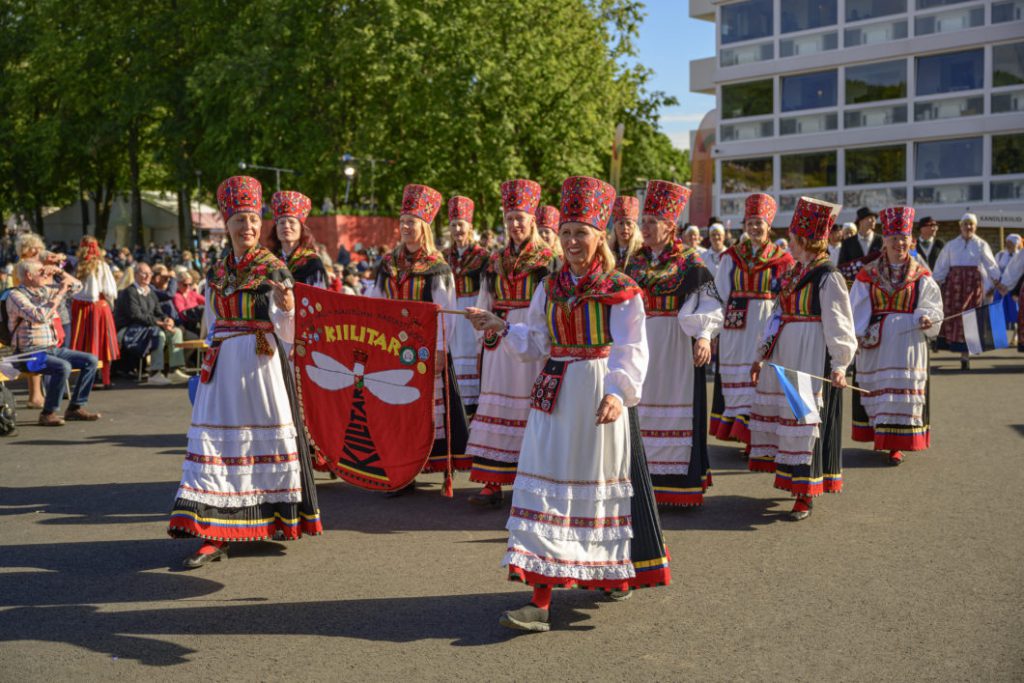
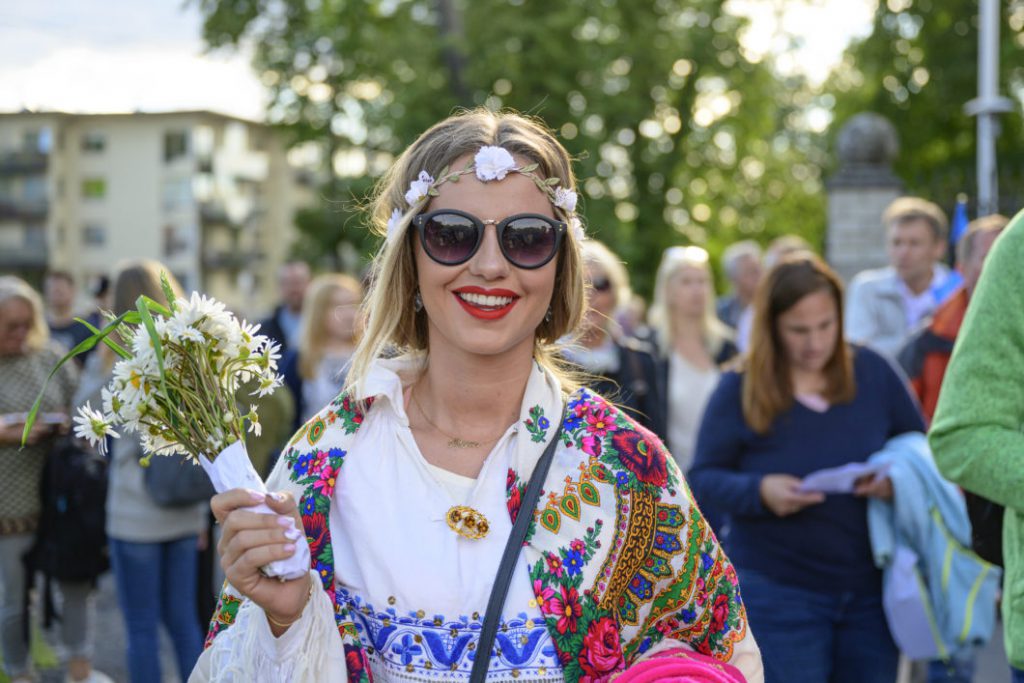
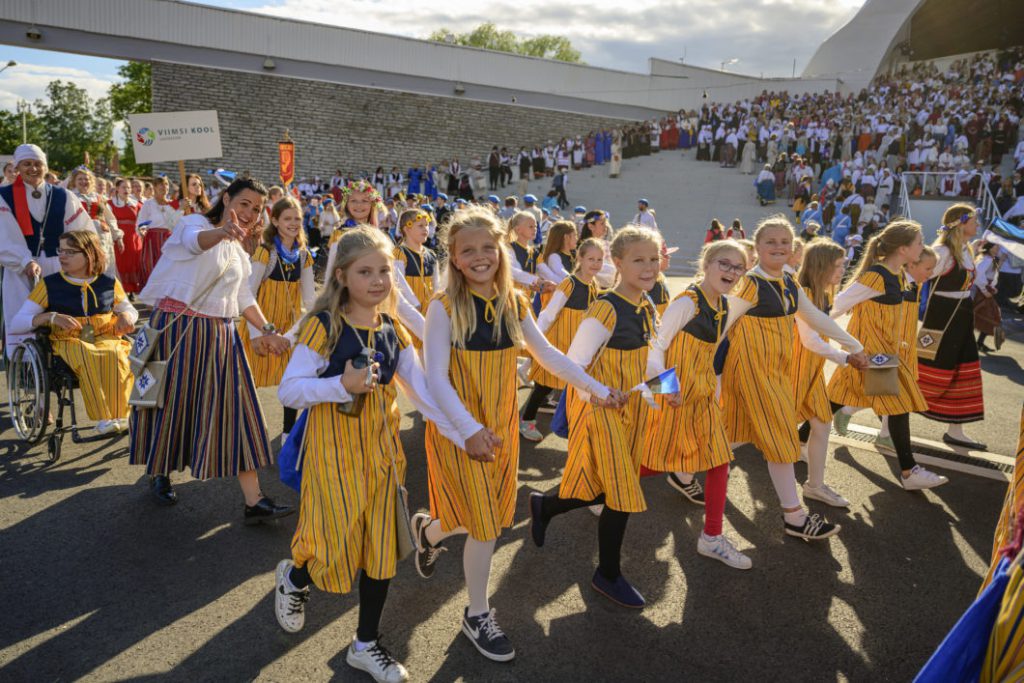
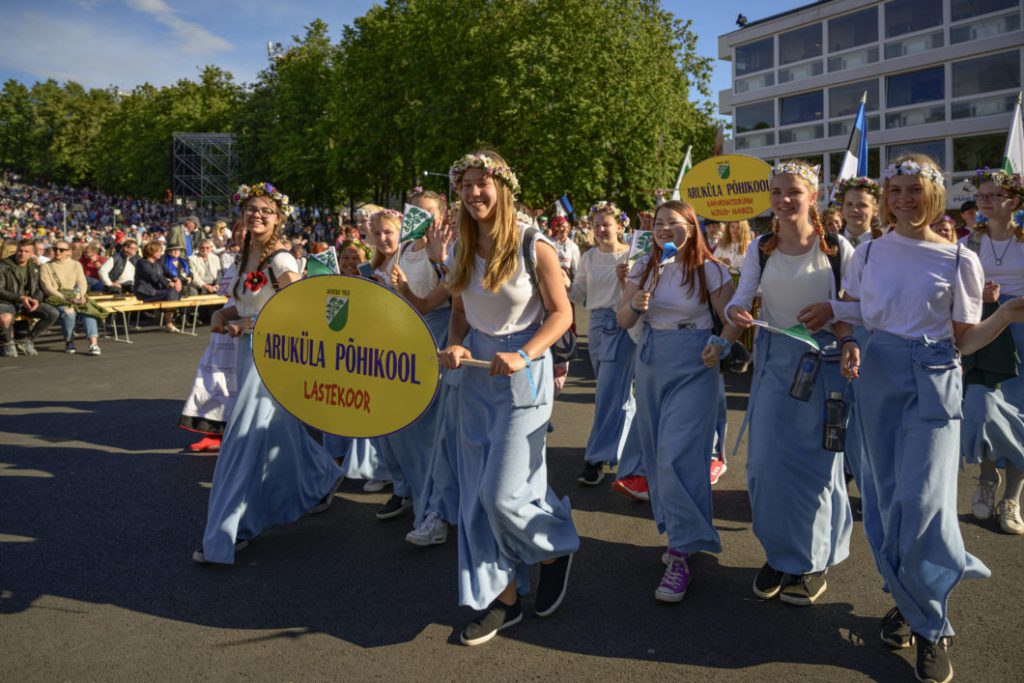
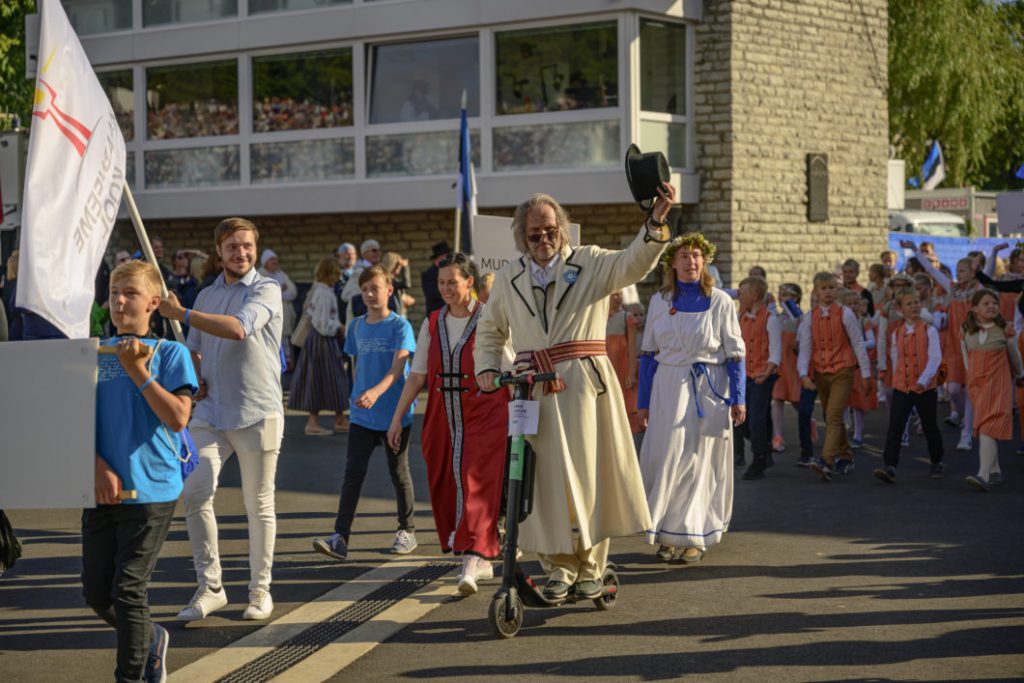
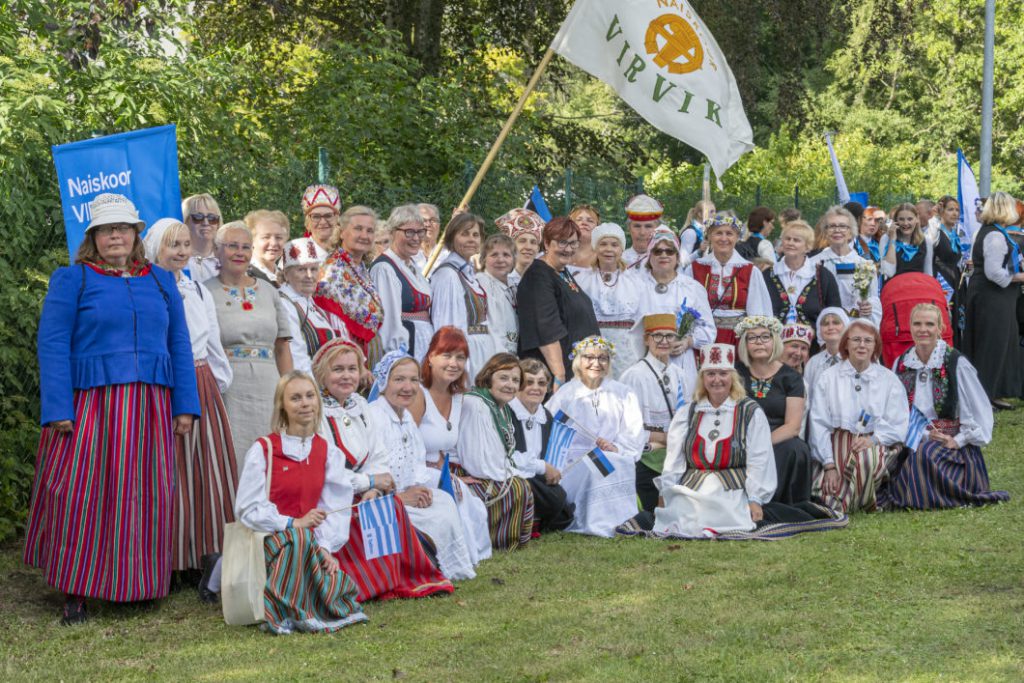
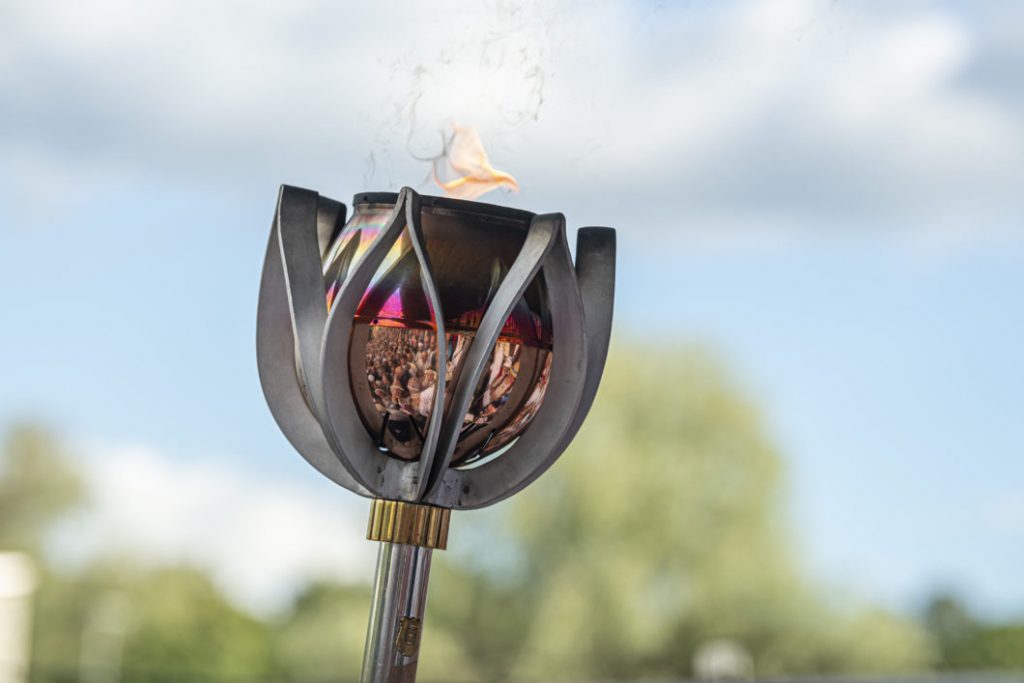

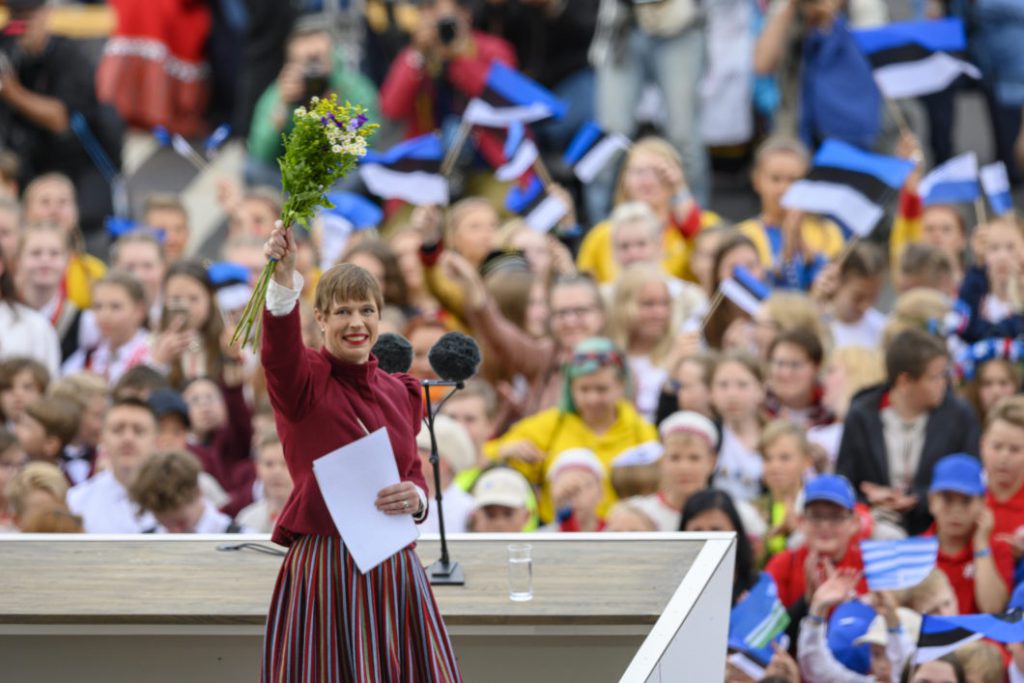
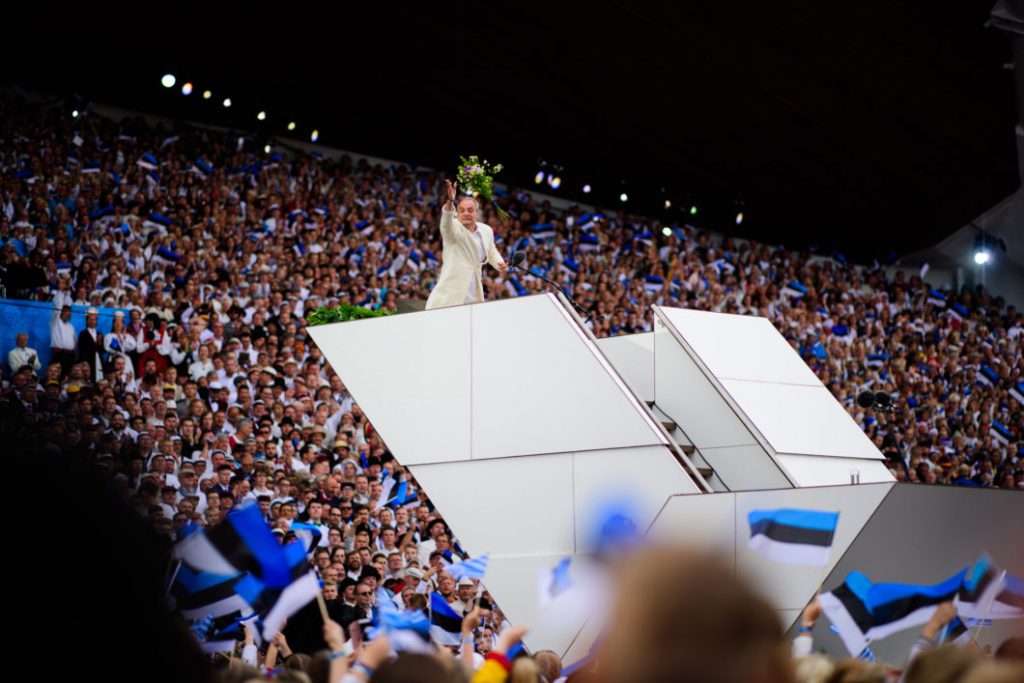
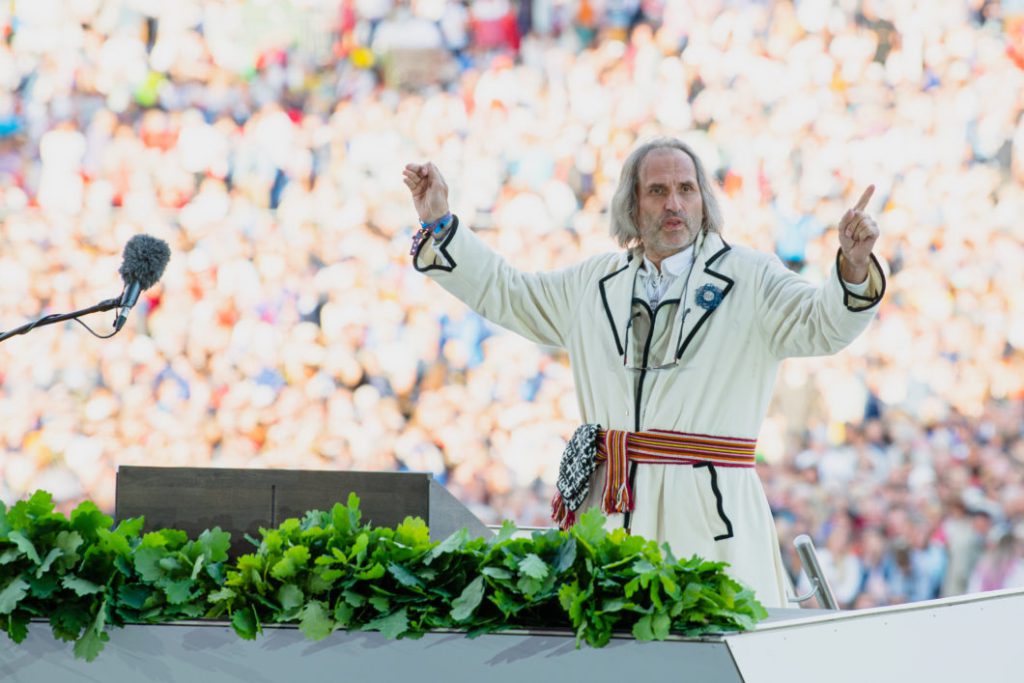
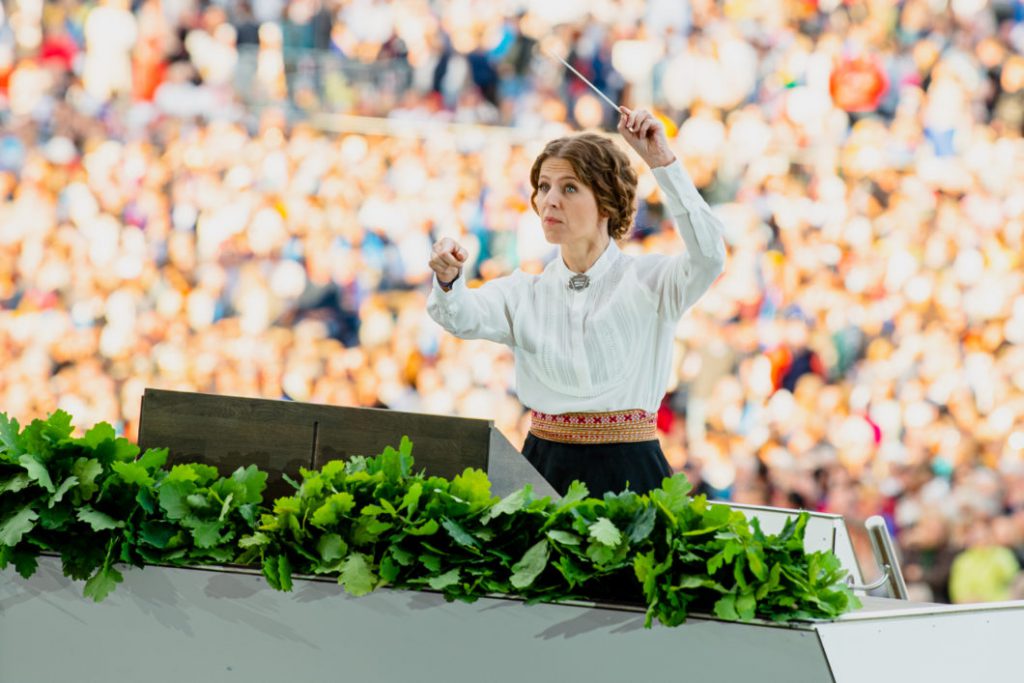
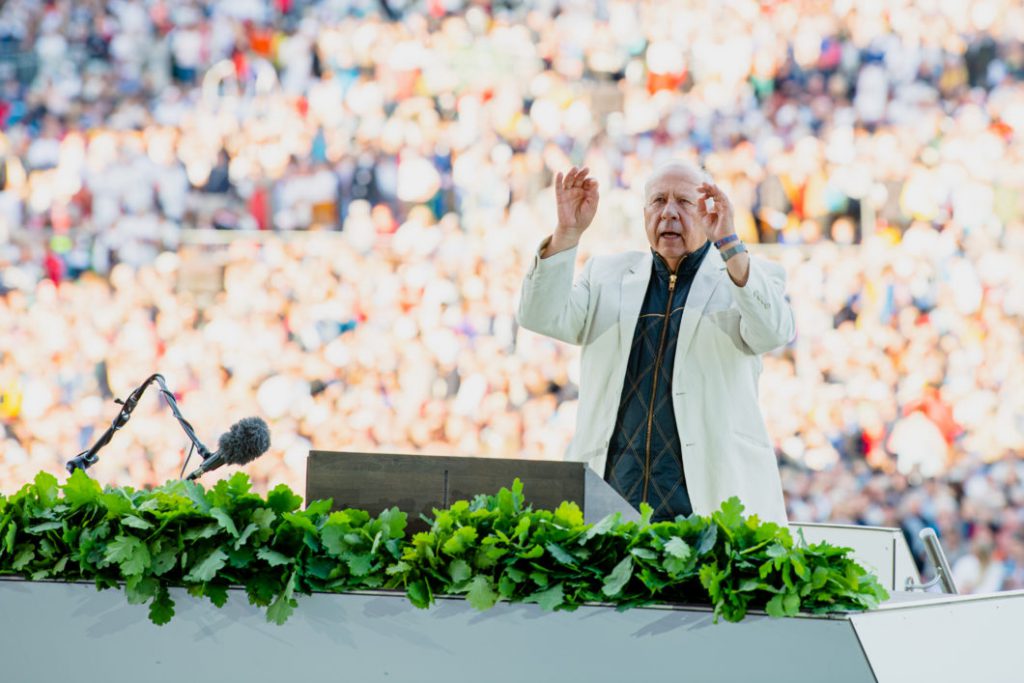
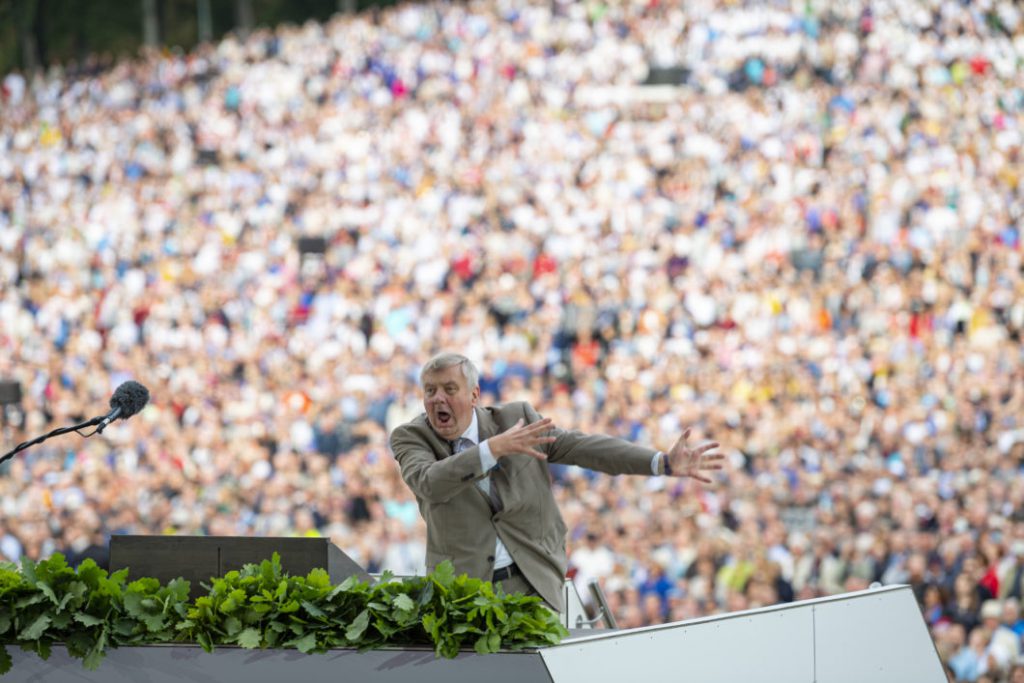
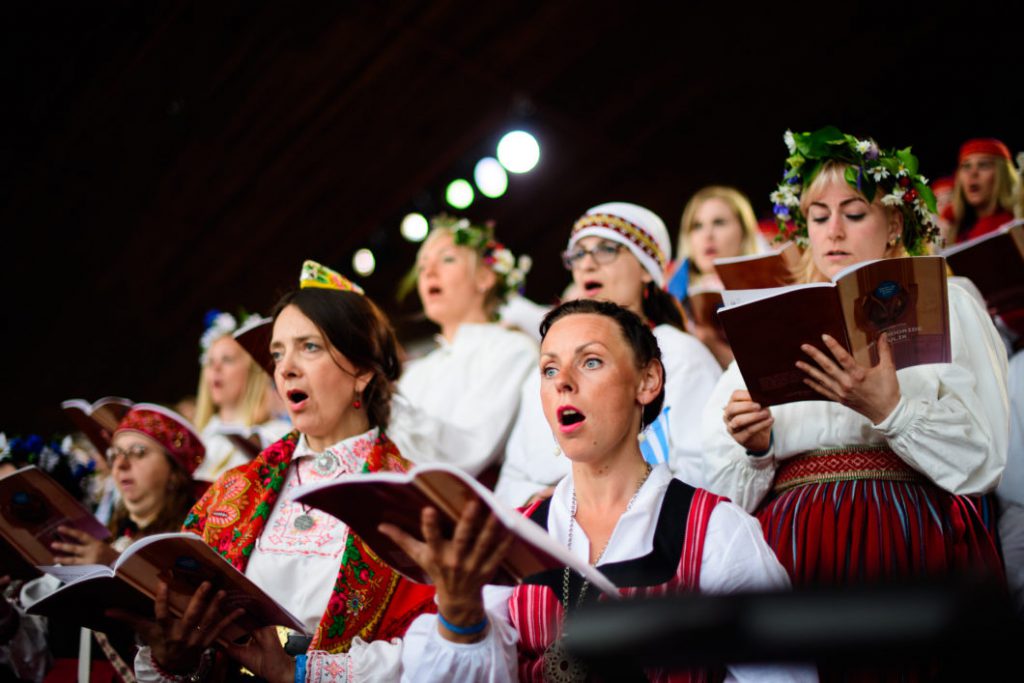

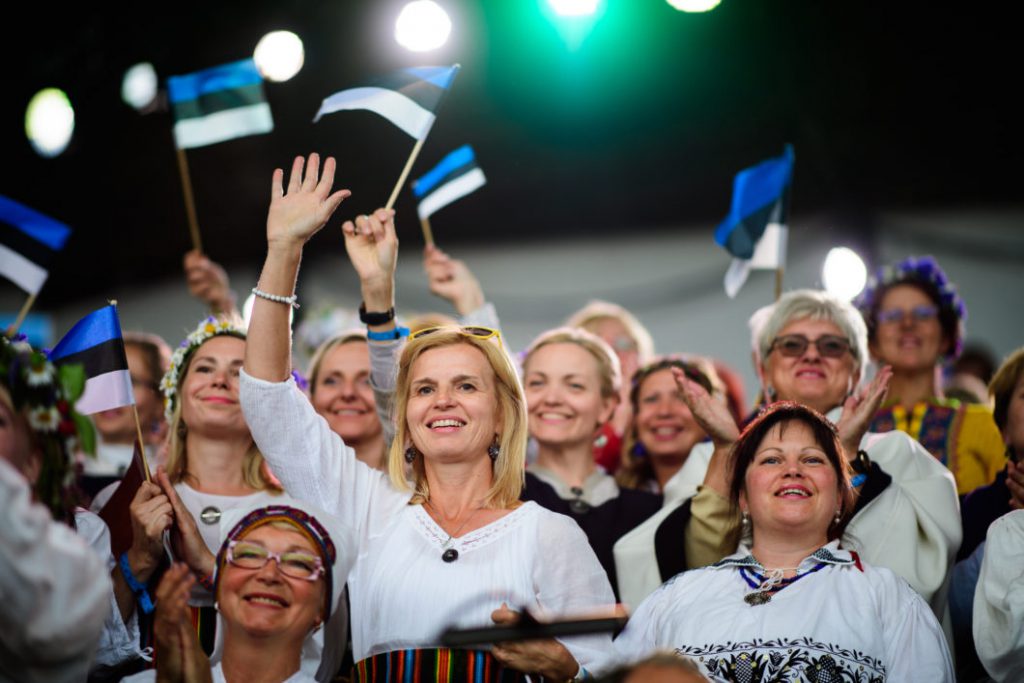
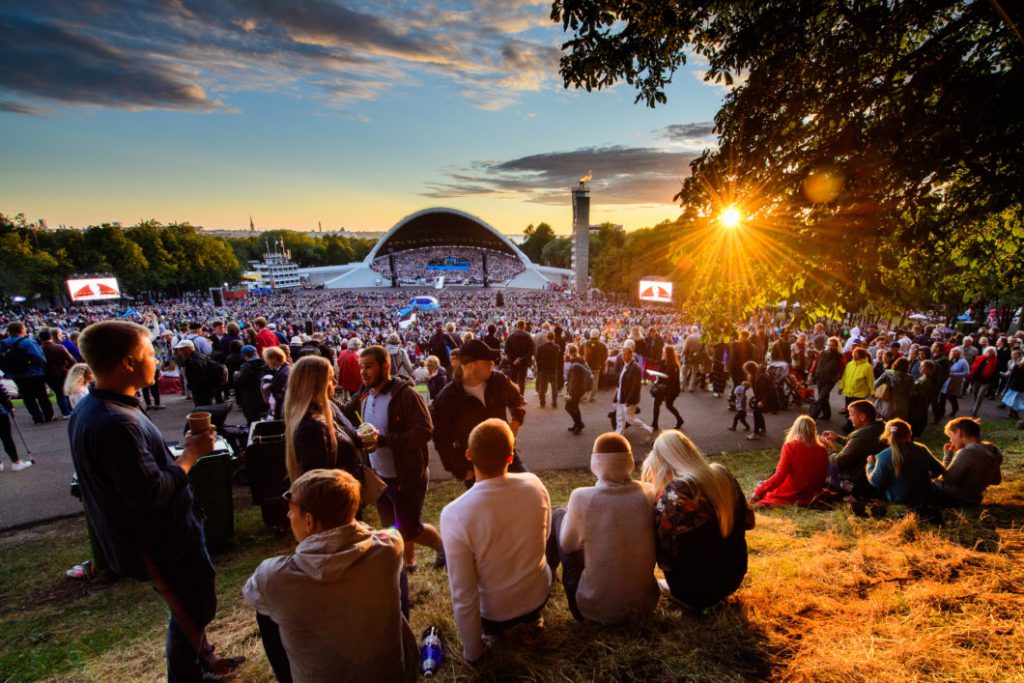
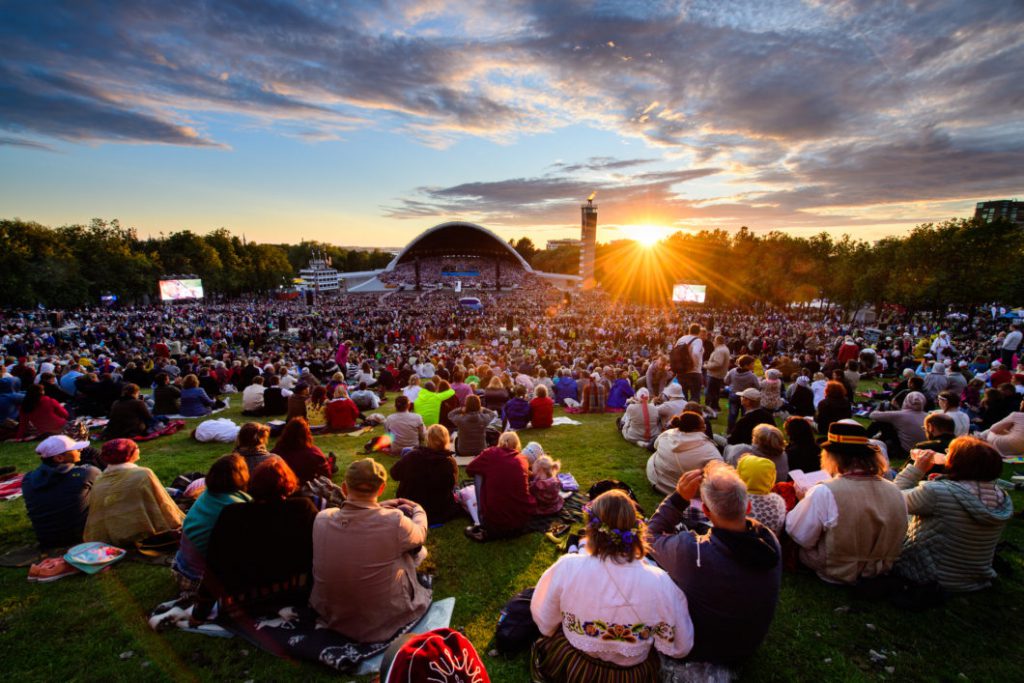
Almost 100,000 people on the second day
Tickets sold out on Sunday as 95,000 people came to Tallinn’s Song Festival Grounds for the second day of the 150th anniversary of the Song Celebration, Minu Arm (My Love).
Long queues formed outside the festival grounds on Sunday afternoon as unlucky festival-goers were denied entry to the grounds due to full capacity. At the press conference on Sunday morning, journalists had been told this was the biggest-ever song celebration. There were more singers, more choirs, more tickets sold, and there had been more dancers than ever before at dance festival earlier in the week. The festival organisers said there were 1,020 choirs, 35,000 singers, and 11,500 dancers.
The Song Celebration’s artistic director, Peeter Perens, said he was “very happy” with the results of the first concert “For the Teacher” on Saturday. “I want to thank God for the beautiful weather and the Estonian people for coming to the celebration and for trusting us, the conductors and singers who performed magnificently,” he said.
He noted his ideas for the song celebration had been built on the Finno-Ugric culture, which the Estonia language comes from, and the European culture which brought the singing festivals to Estonia more than 150 years ago. The programme was created three years ago and since then more than 300 rehearsals took place.
Perens and Marju Lauristin, professor emeritus at the University of Tartu, said day-to-day politics played no role in the Song Celebration or the music selection. “The song celebration is so big, as a process, as a phenomenon, it is to do with our existence, and is bigger than the daily politics that is going on,” Perens said.
Lauristin also discussed her research that shows that 48% of the Estonian population has, at some time in their lives, taken part in the song celebration and is one of the remaining activities that is enjoyed by the whole of society.
Discussing the history of the song celebration, she said, “Through 150 years these people have the same memories, coming together in winter, through snow, in times when there were no cars, no internet, walking 10-15 kilometres to school or place where they would gather and have a singing society, all over the country. Then they would rehearse those beautiful songs which were written. And yesterday we listened to those songs which people were singing 150 years ago and the songs about the things closest to the hearts of the people.”
Lauristin added that the atmosphere of the song celebration had changed over the years from one of bitterness during the Soviet occupation, to one of joy today.
Composer Pärt Uusberg said it “has been one of my dreams as a composer to write something” for the song celebration. “It’s a very touching experience and it’s not easy to put into words.” Another composer, Riho Esko Maimets, added that the experience of being at the celebration felt “very selfless, [like you are] existing as one little particle in a great mass of your nation.”
The rain forecast for the weekend never fell.

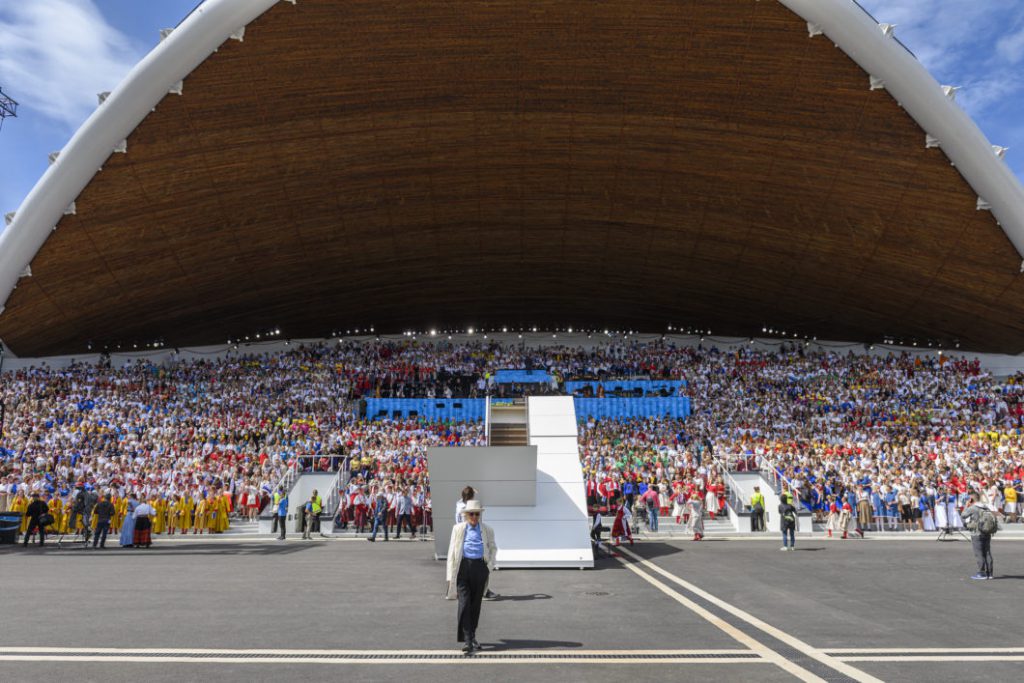
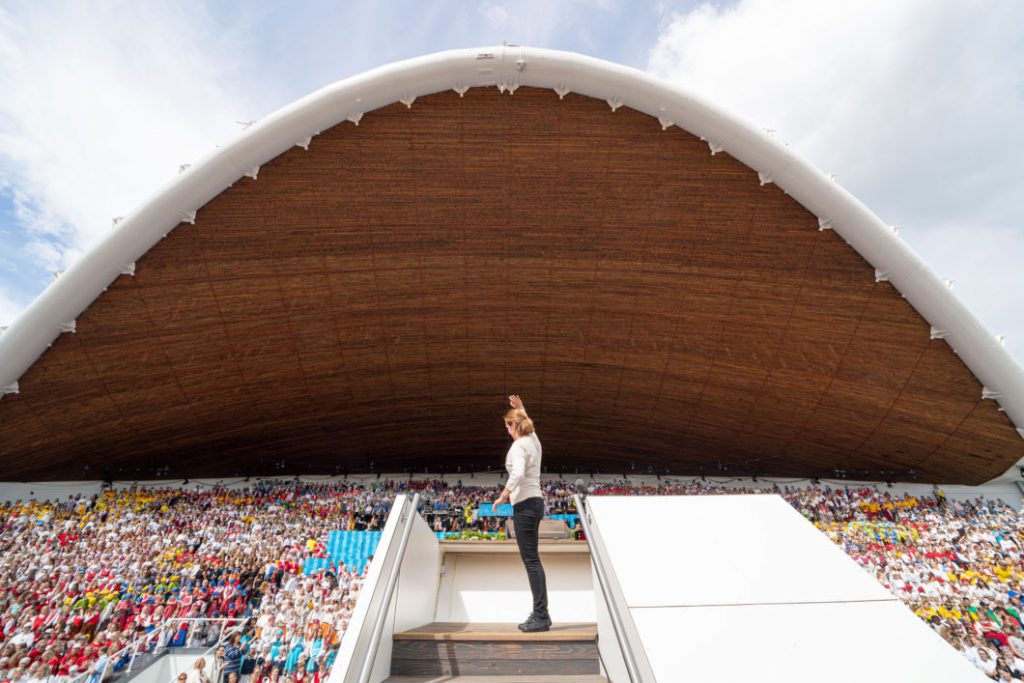
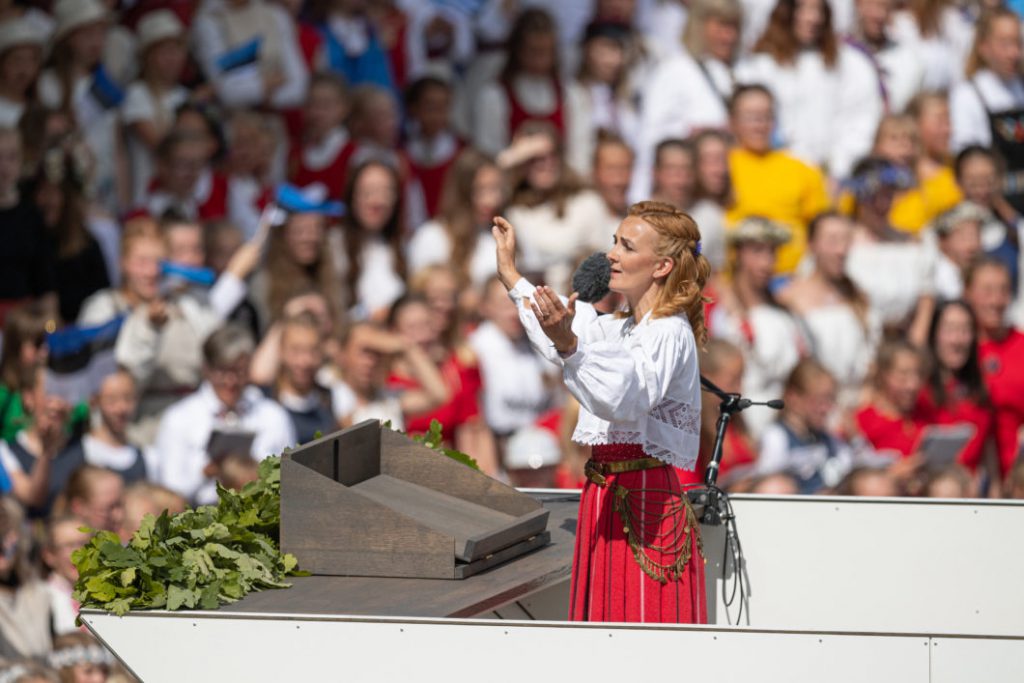
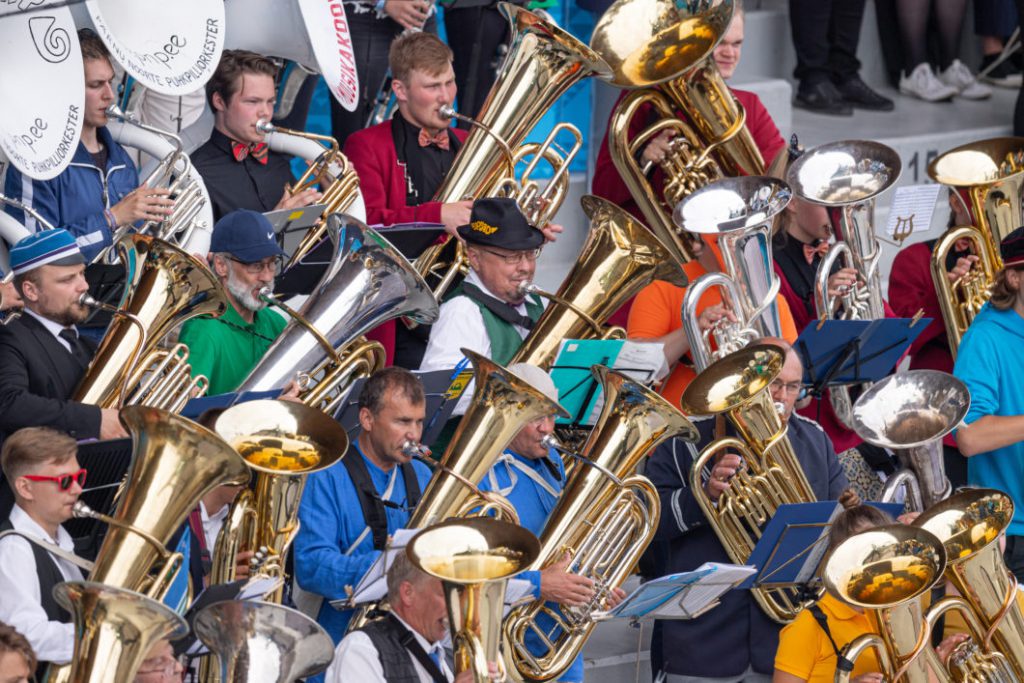
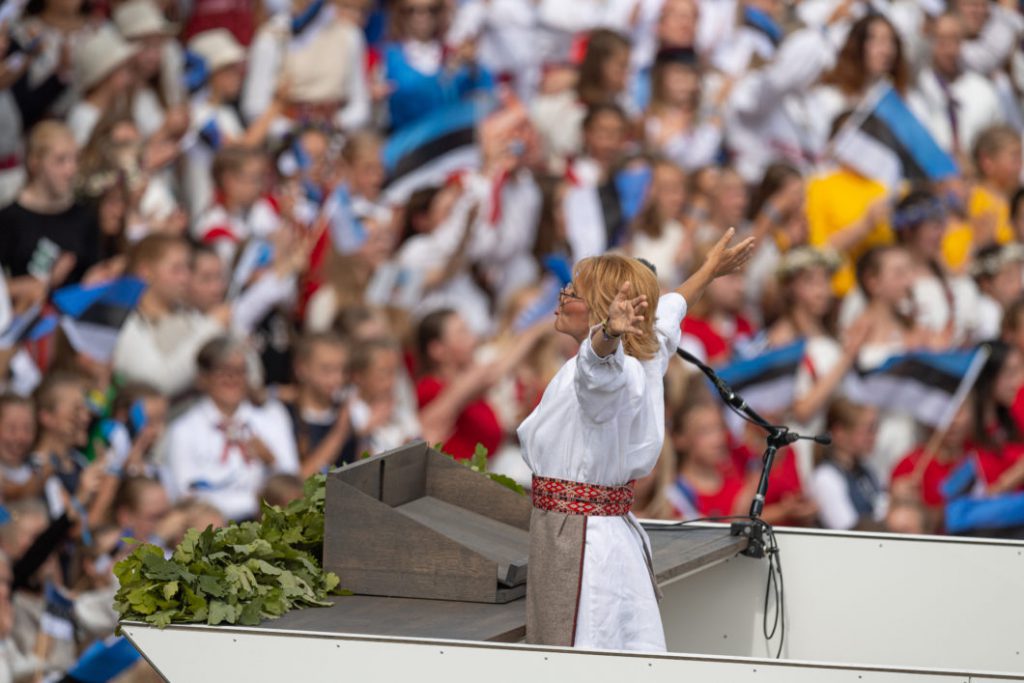

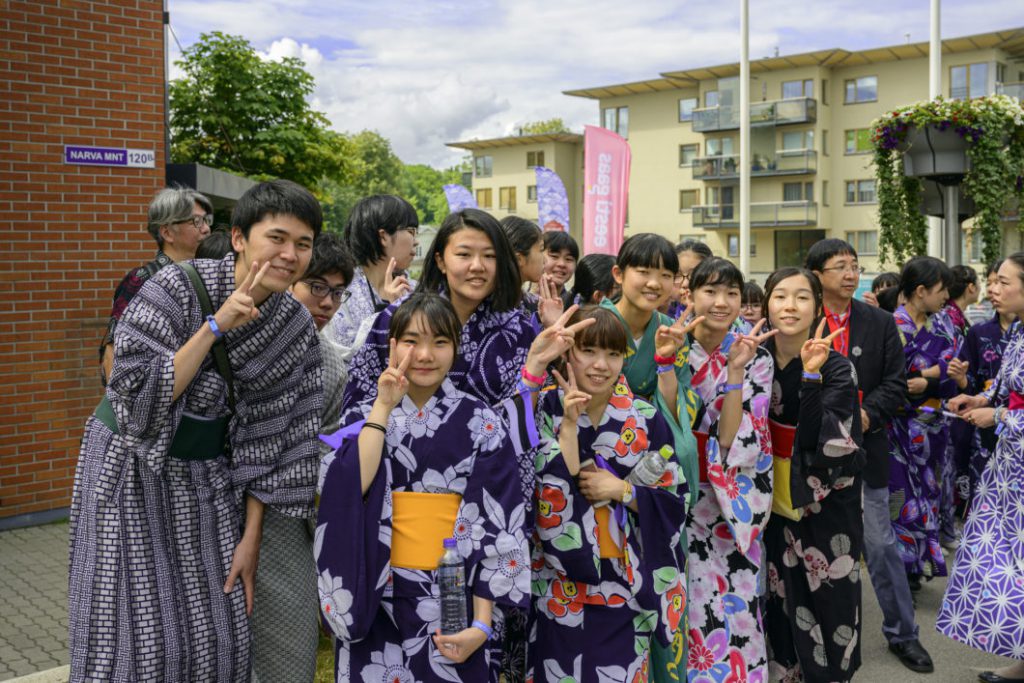
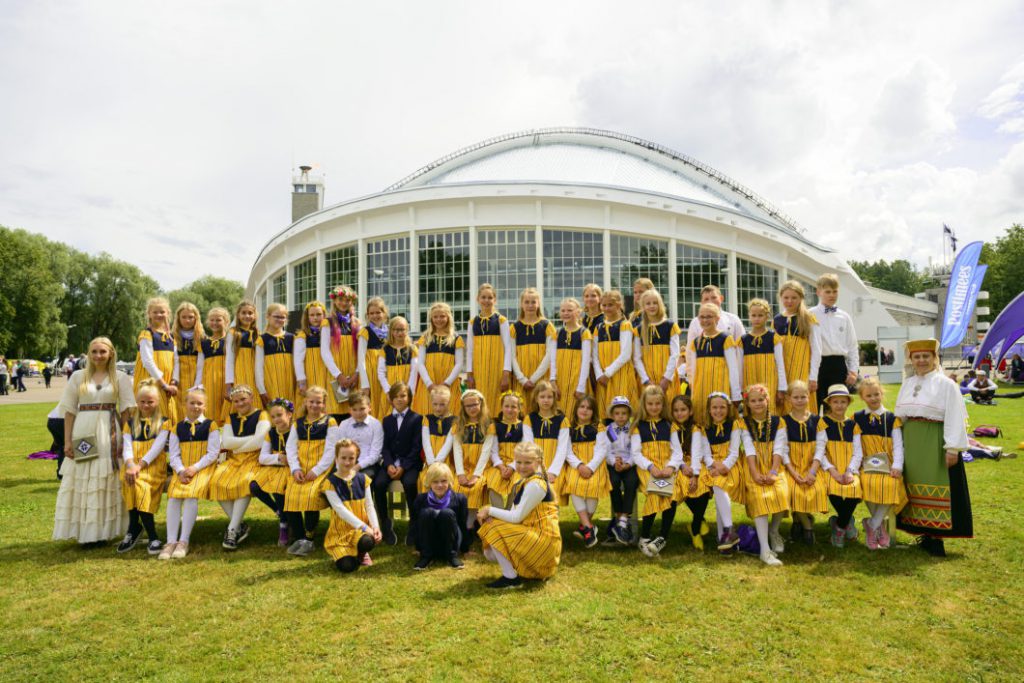
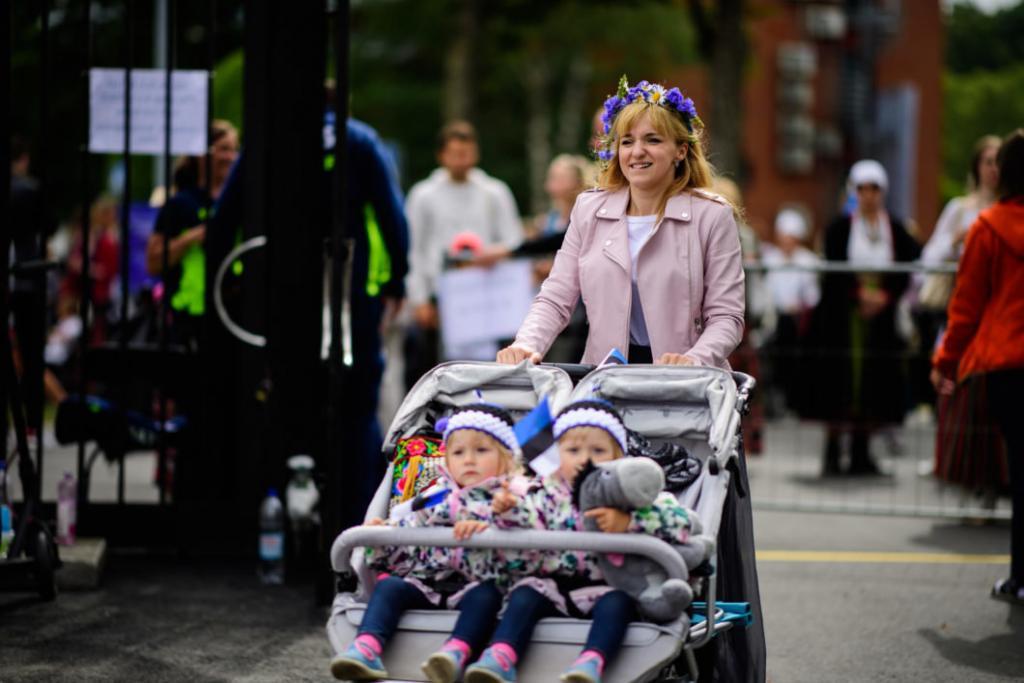

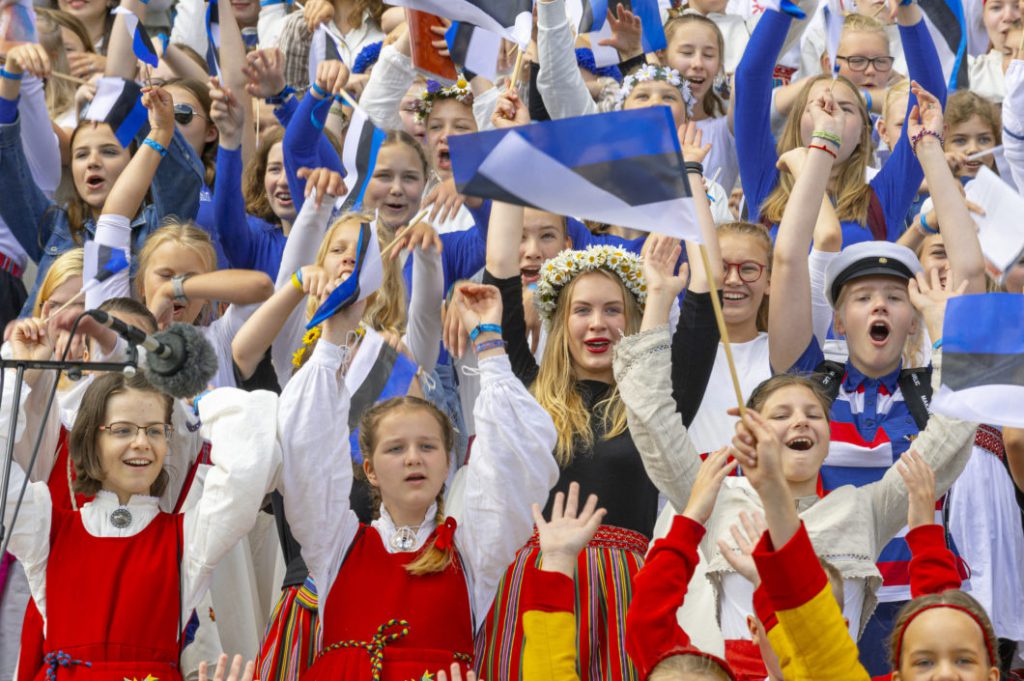
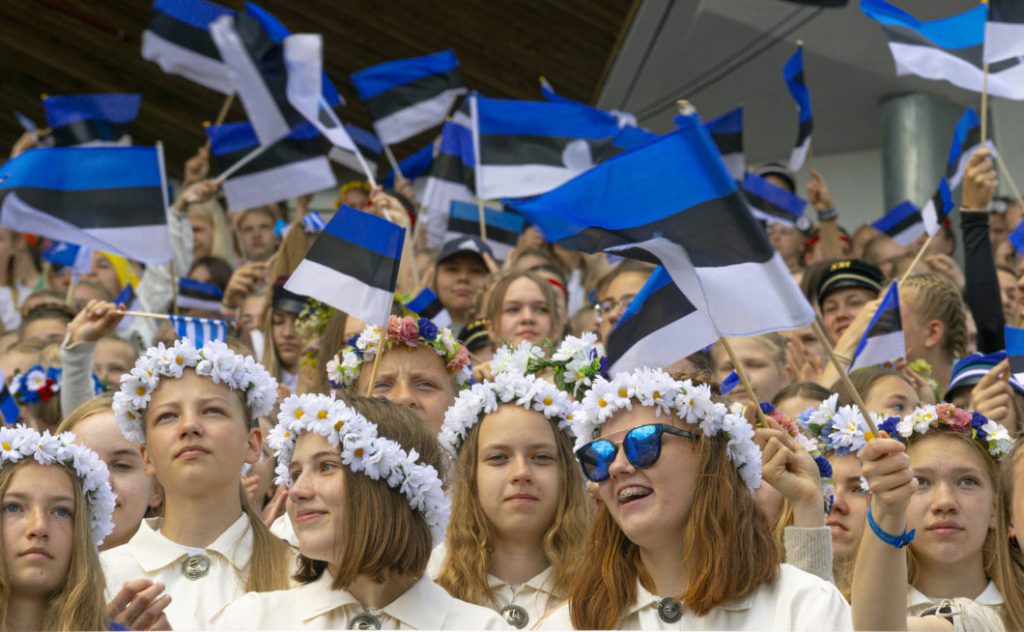
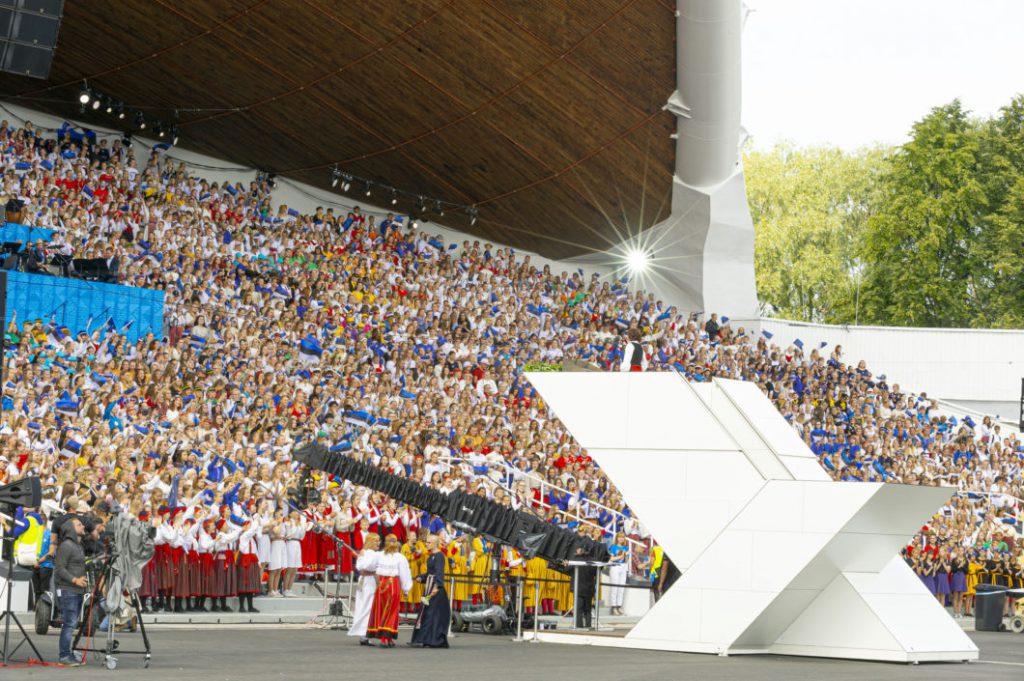
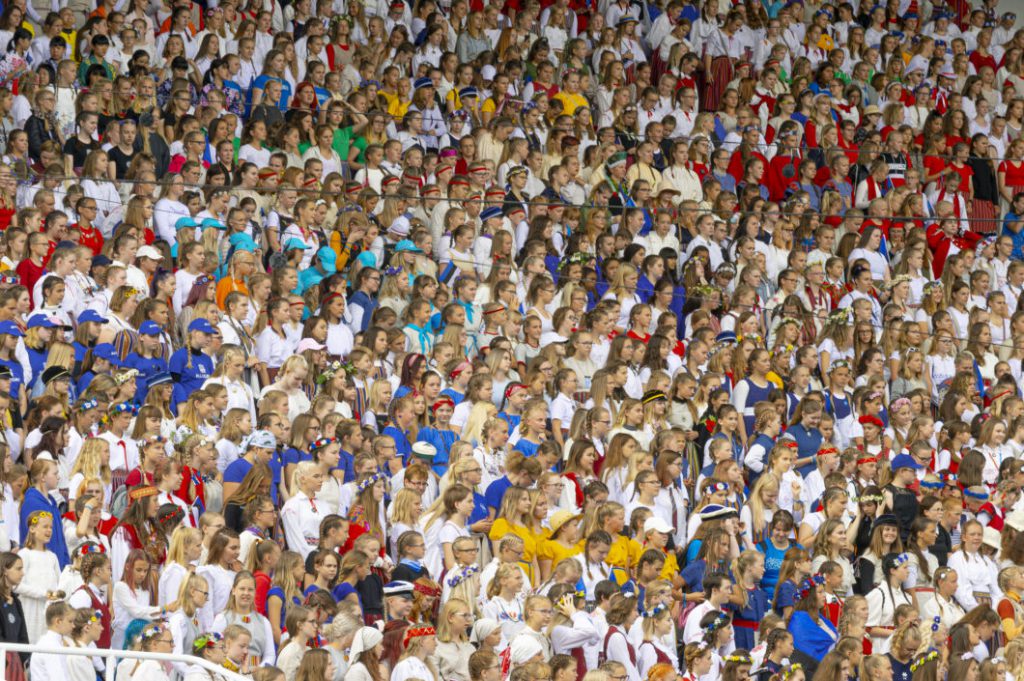
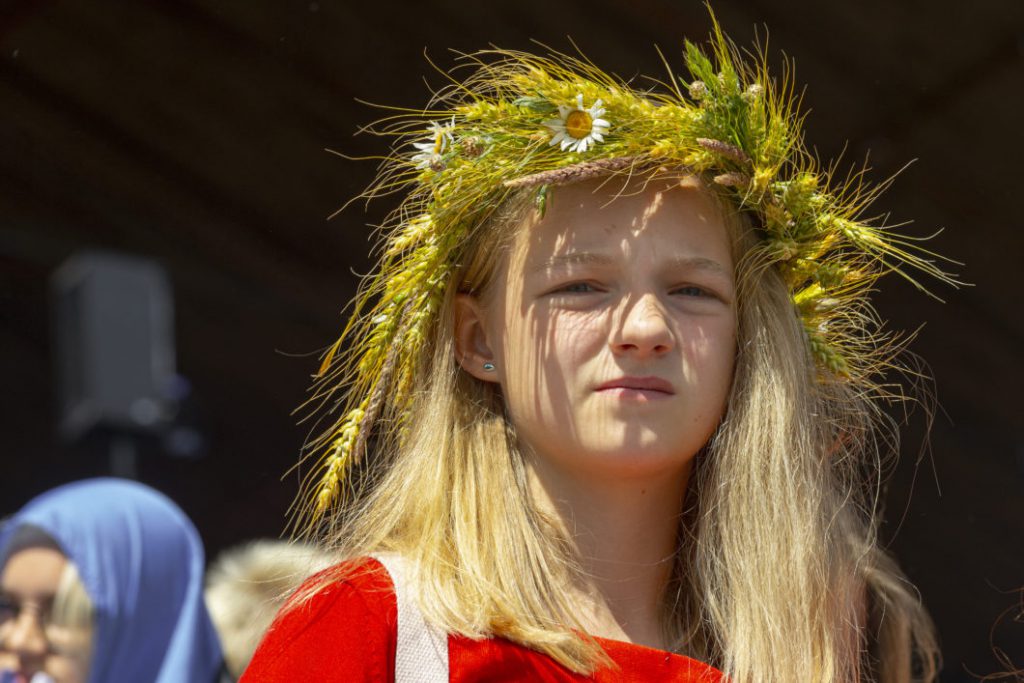
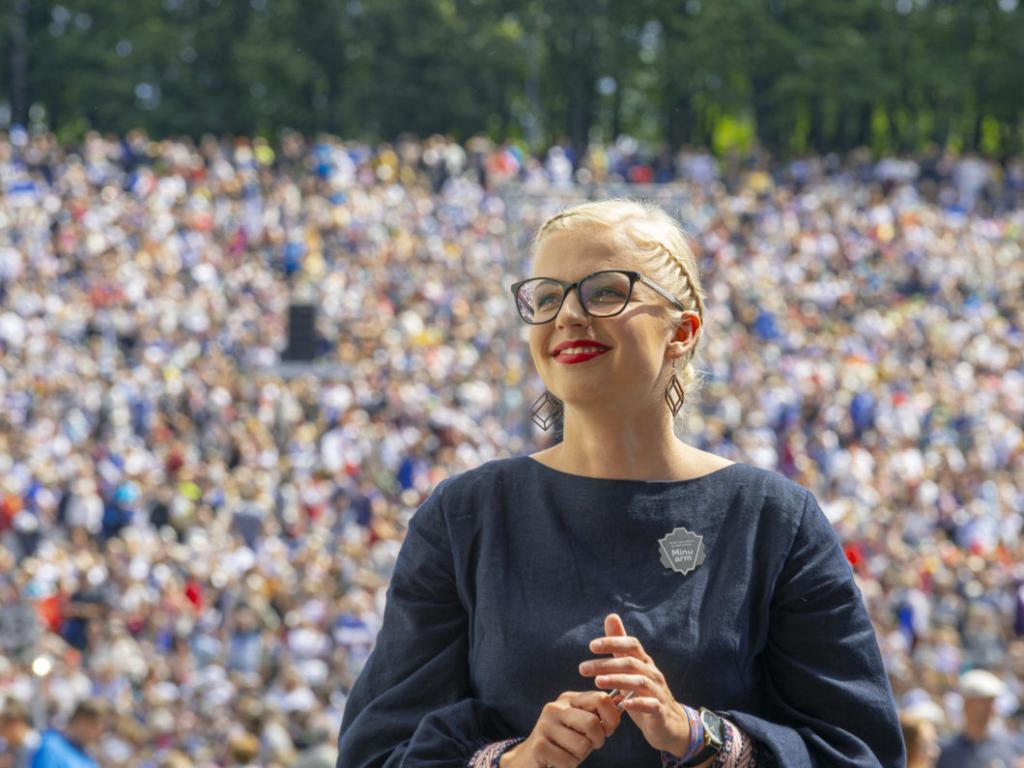
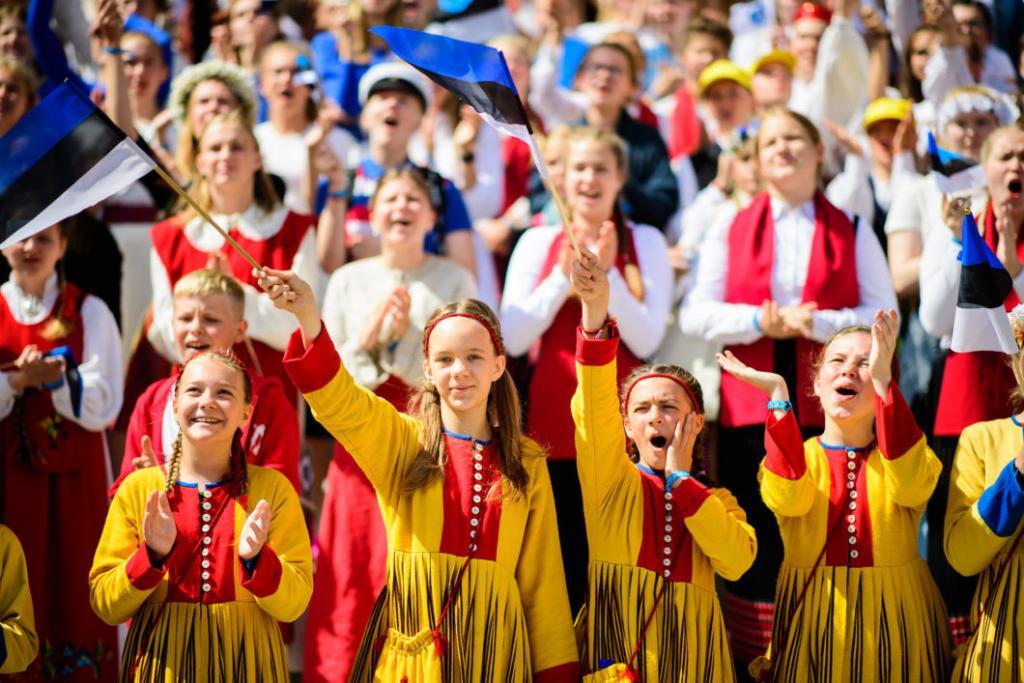
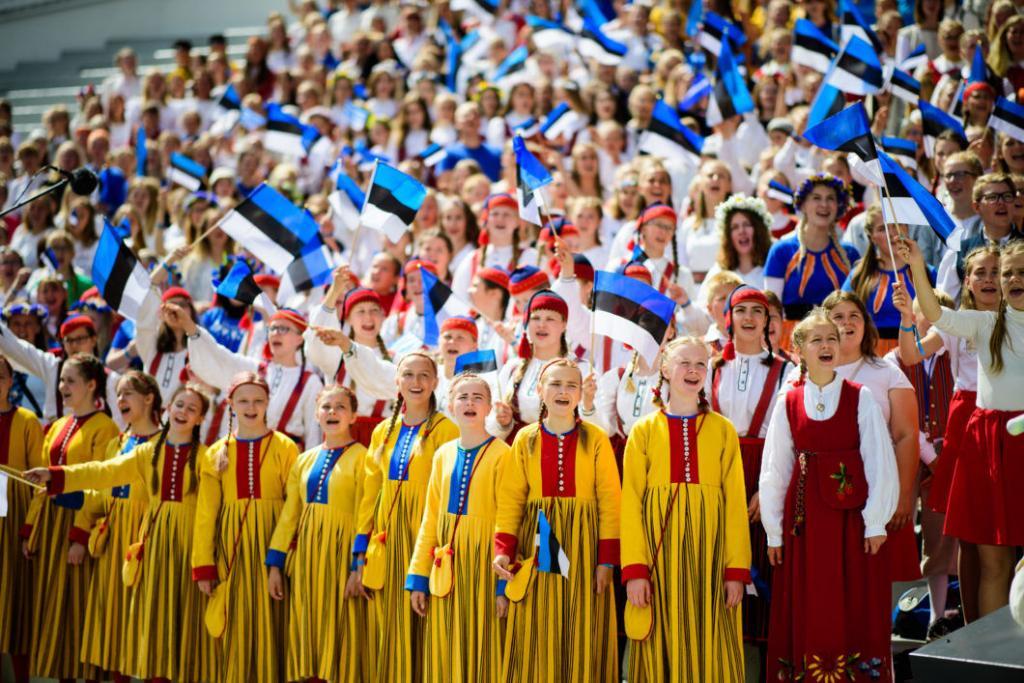
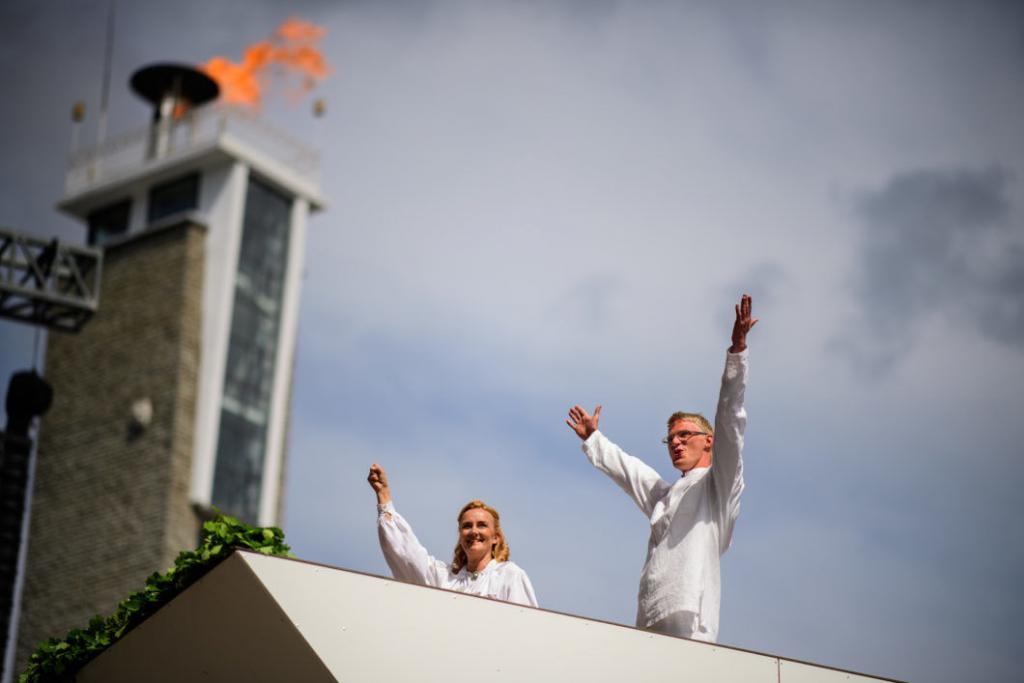
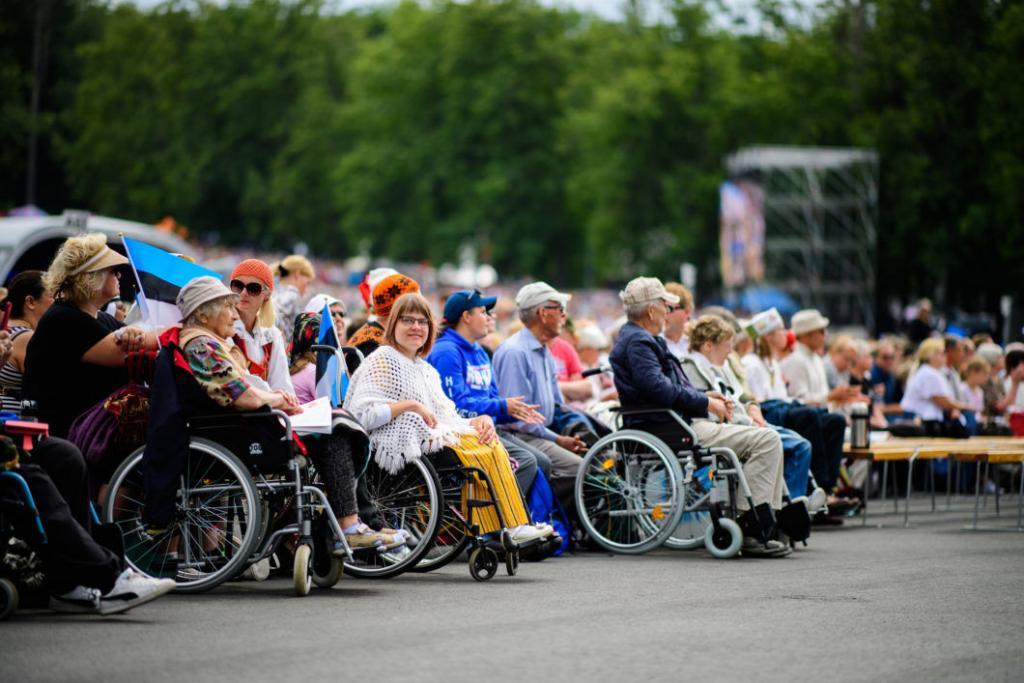
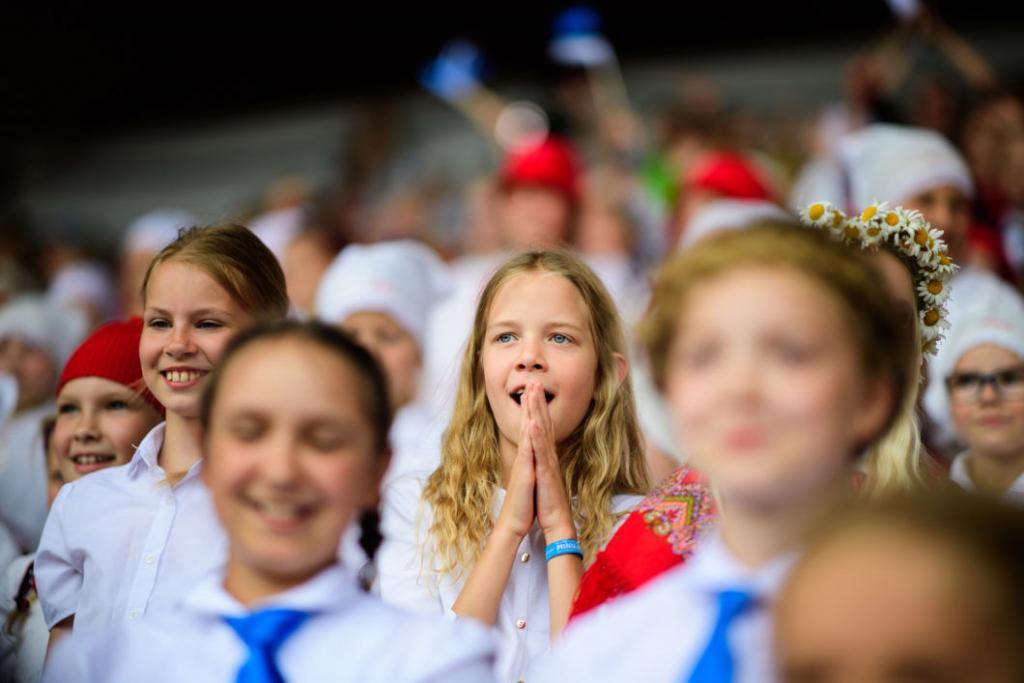
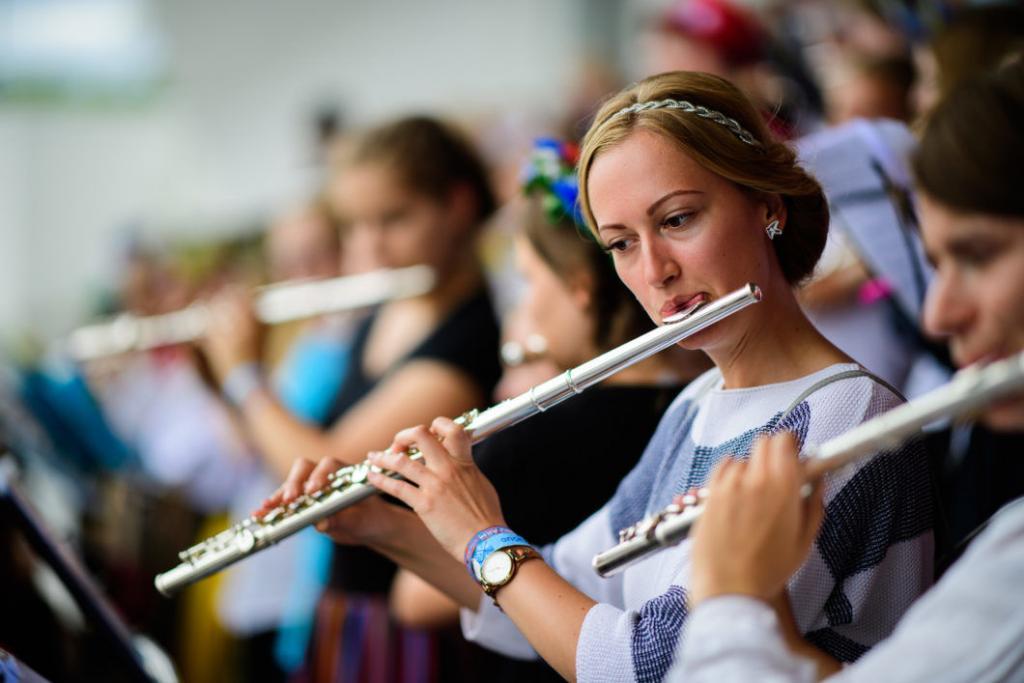

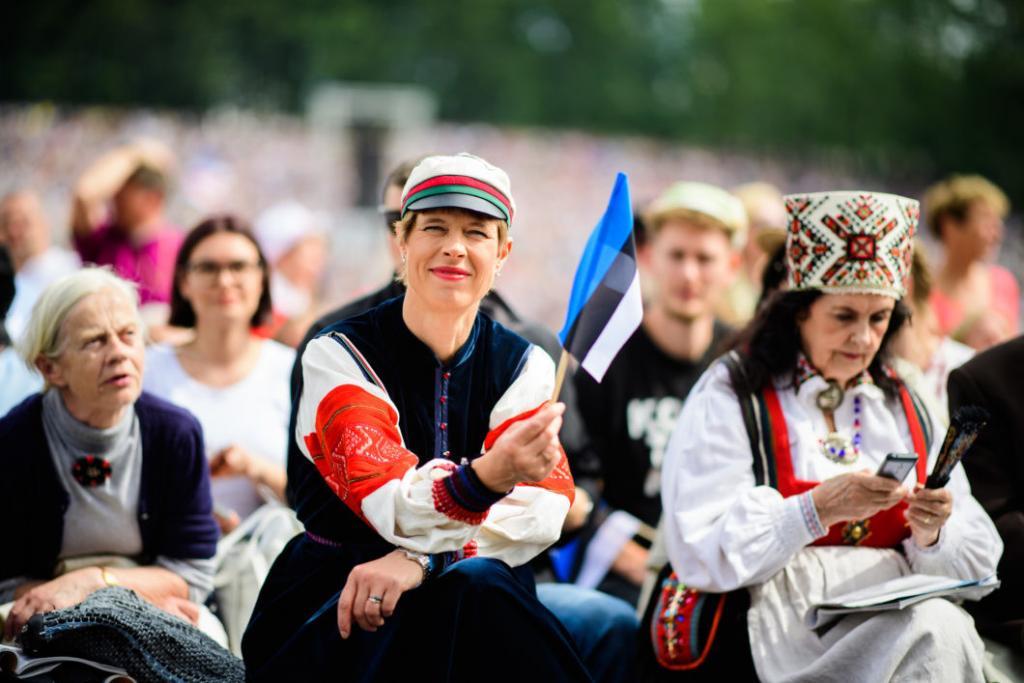
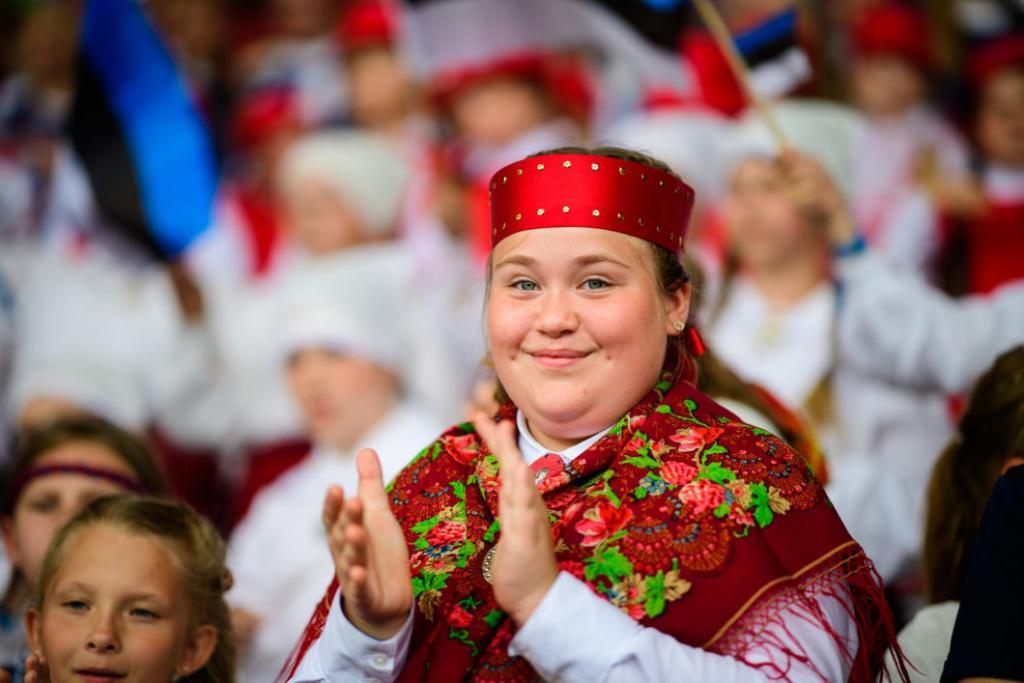
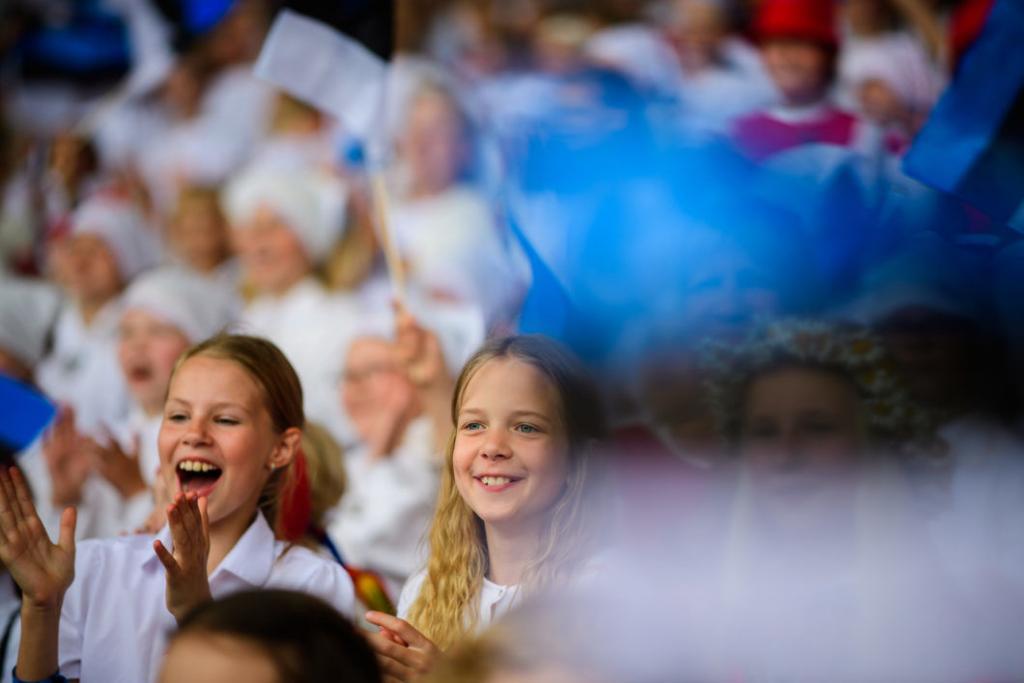
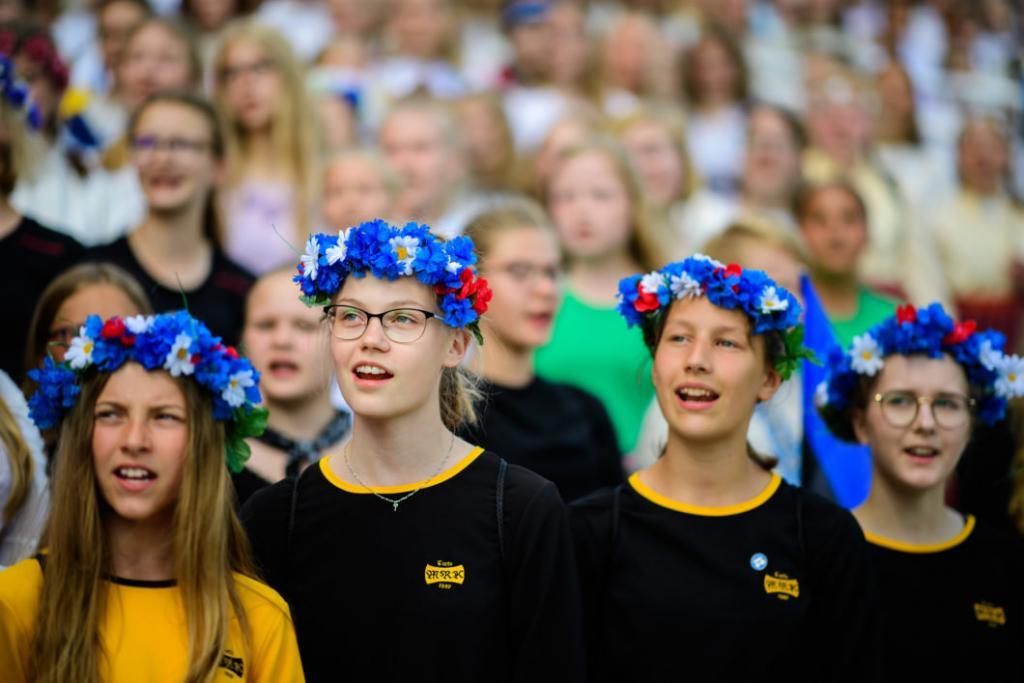
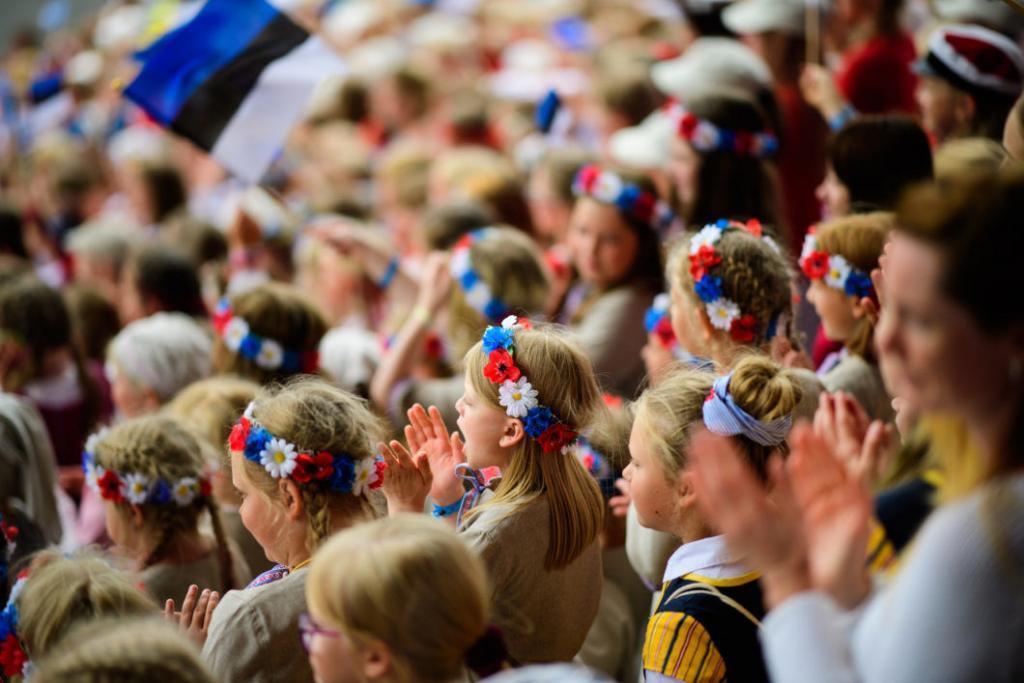
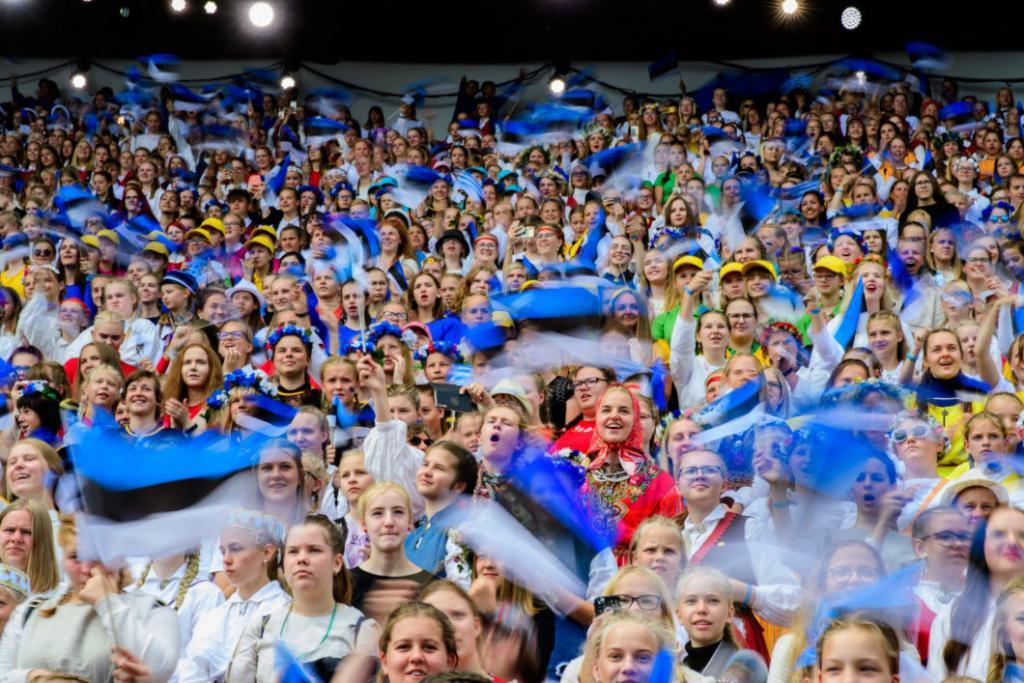
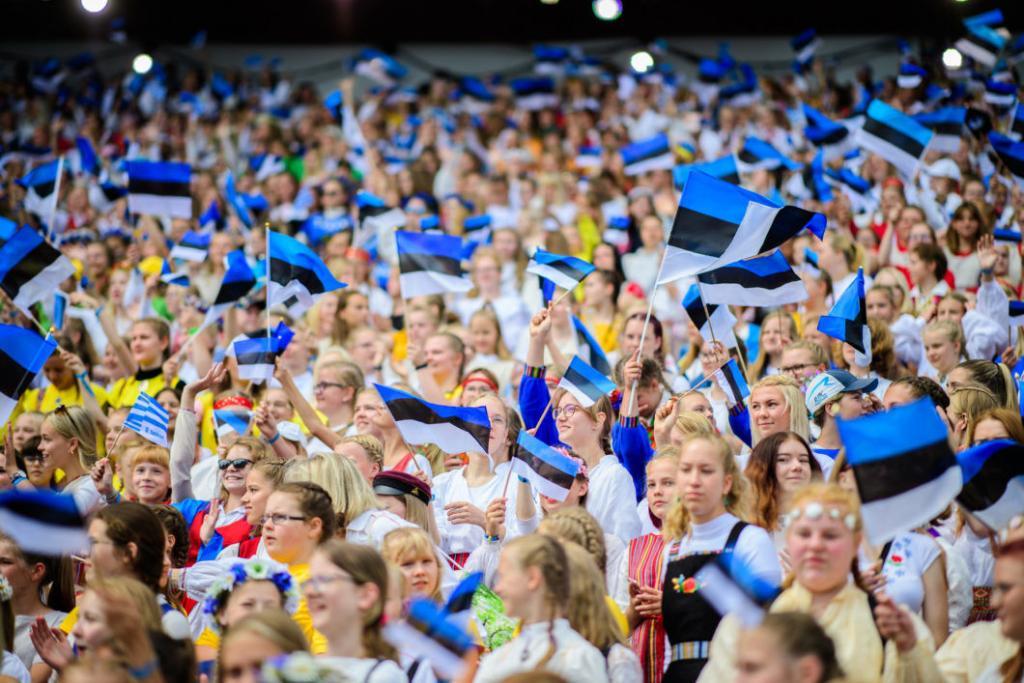

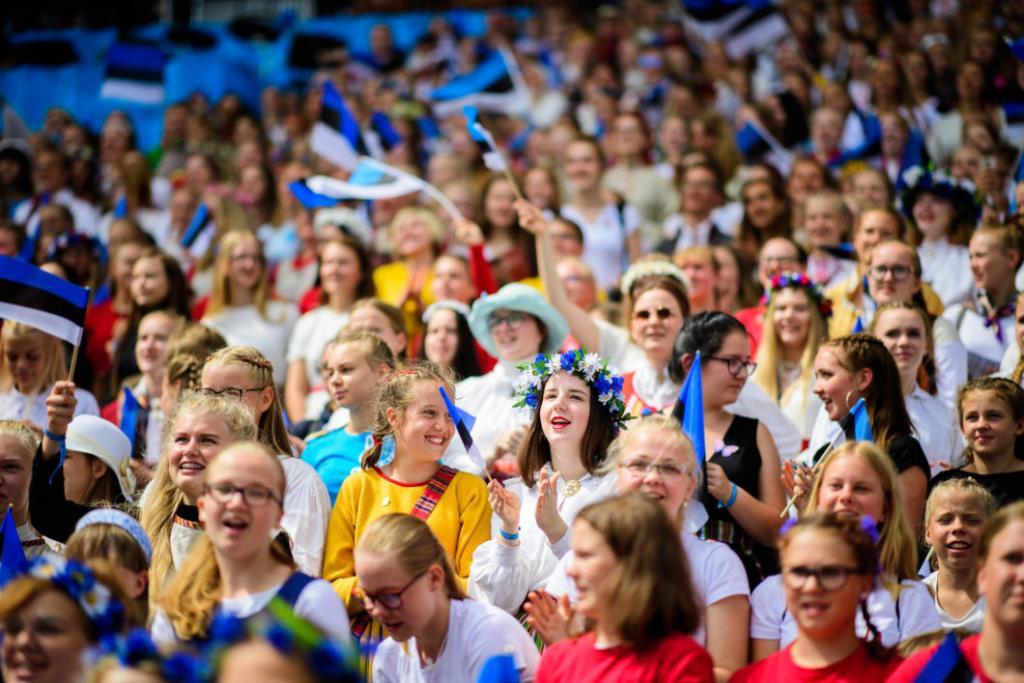


Read also: Gallery: The Estonian Song and Dance Celebration flame lit in Tartu and President Kaljulaid: Song makes Estonians free and Estonian Song Celebration timeline and Meet the Estonian expat and foreign choirs performing at the Song Celebration and Gallery: More than 10,000 dancers participate in Estonian Dance Celebration 2019.
Photos by Sven Zacek, Merili Reinpalu, Rene Mitt, Rein Leib, Ilmars Znotins, Aivar Pihelgas, Ruslan Strelchenko, courtesy of the Song Celebration.
